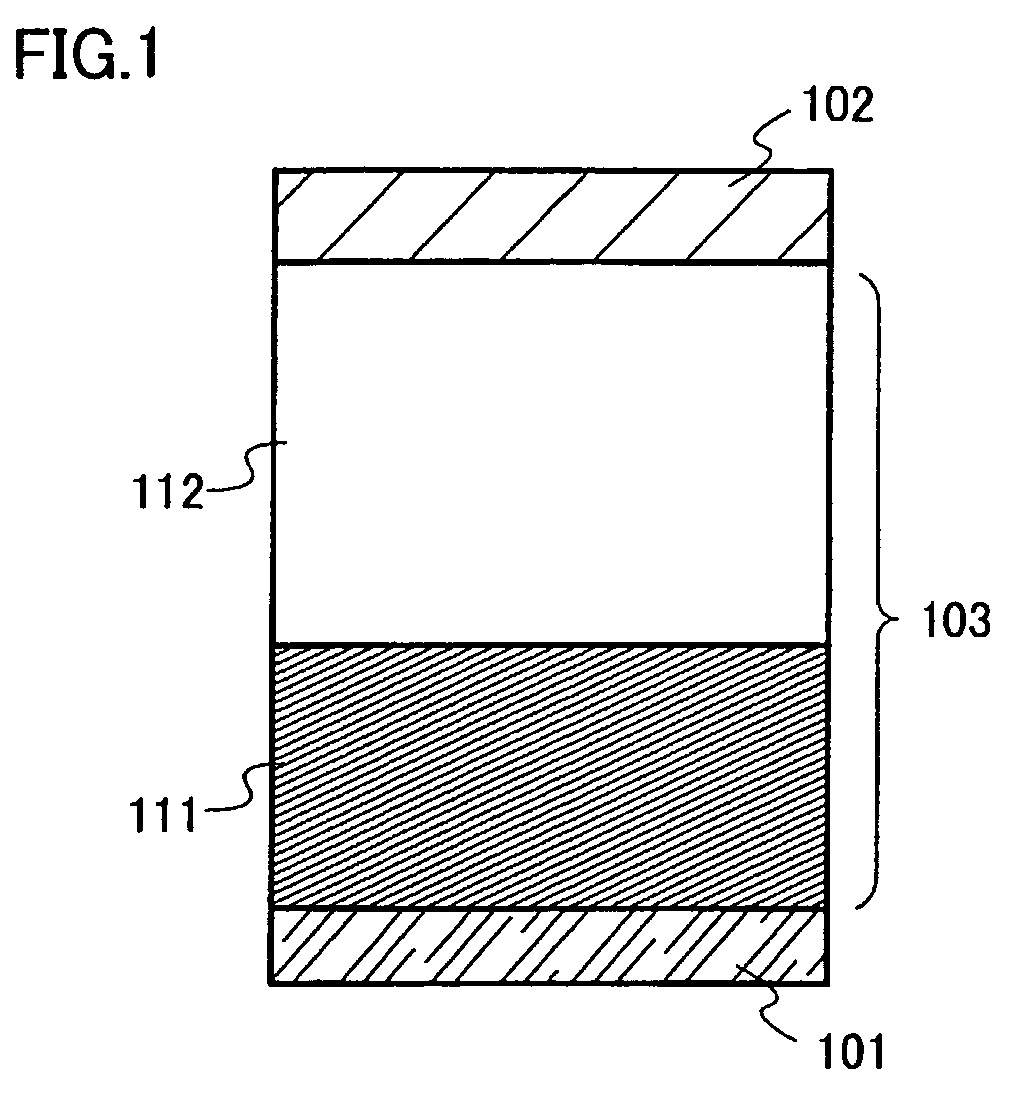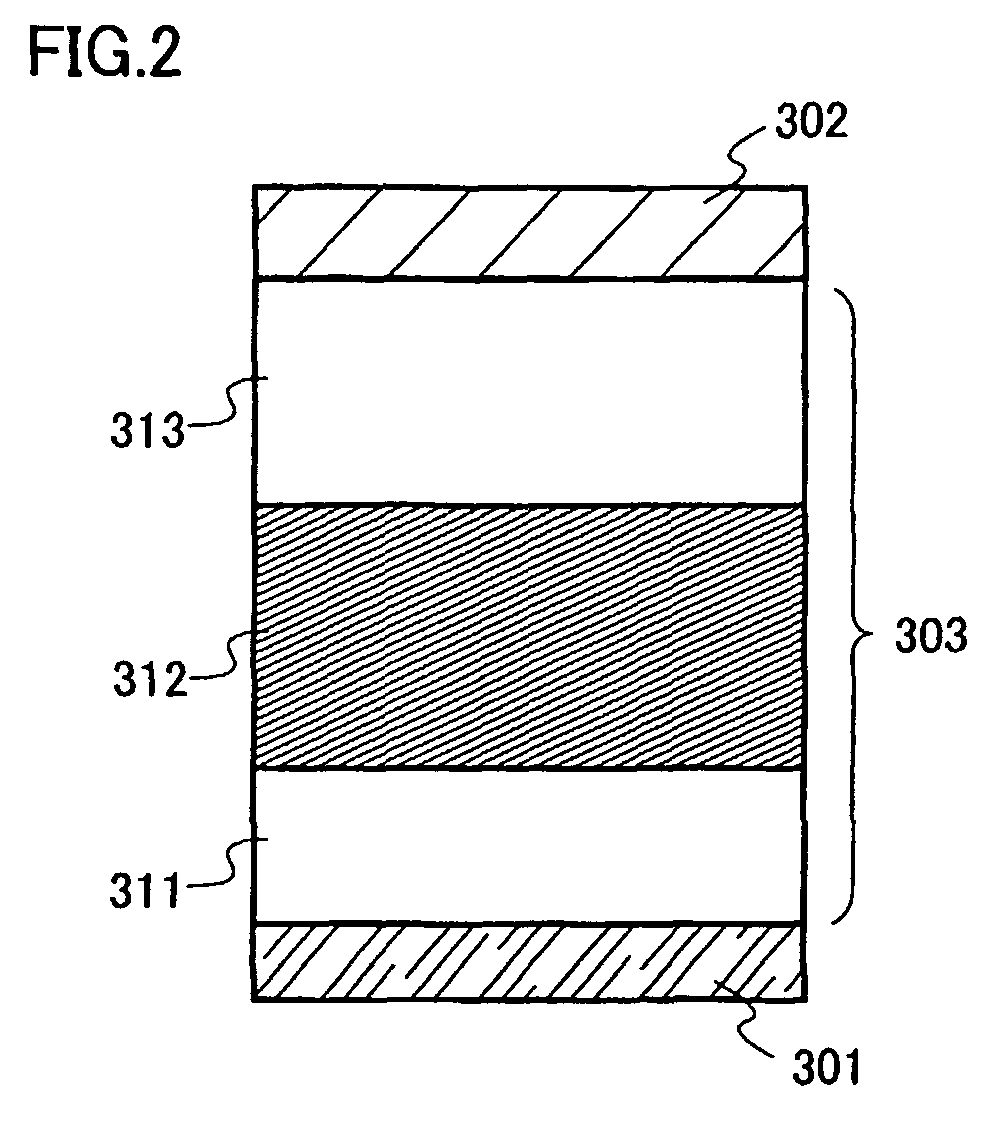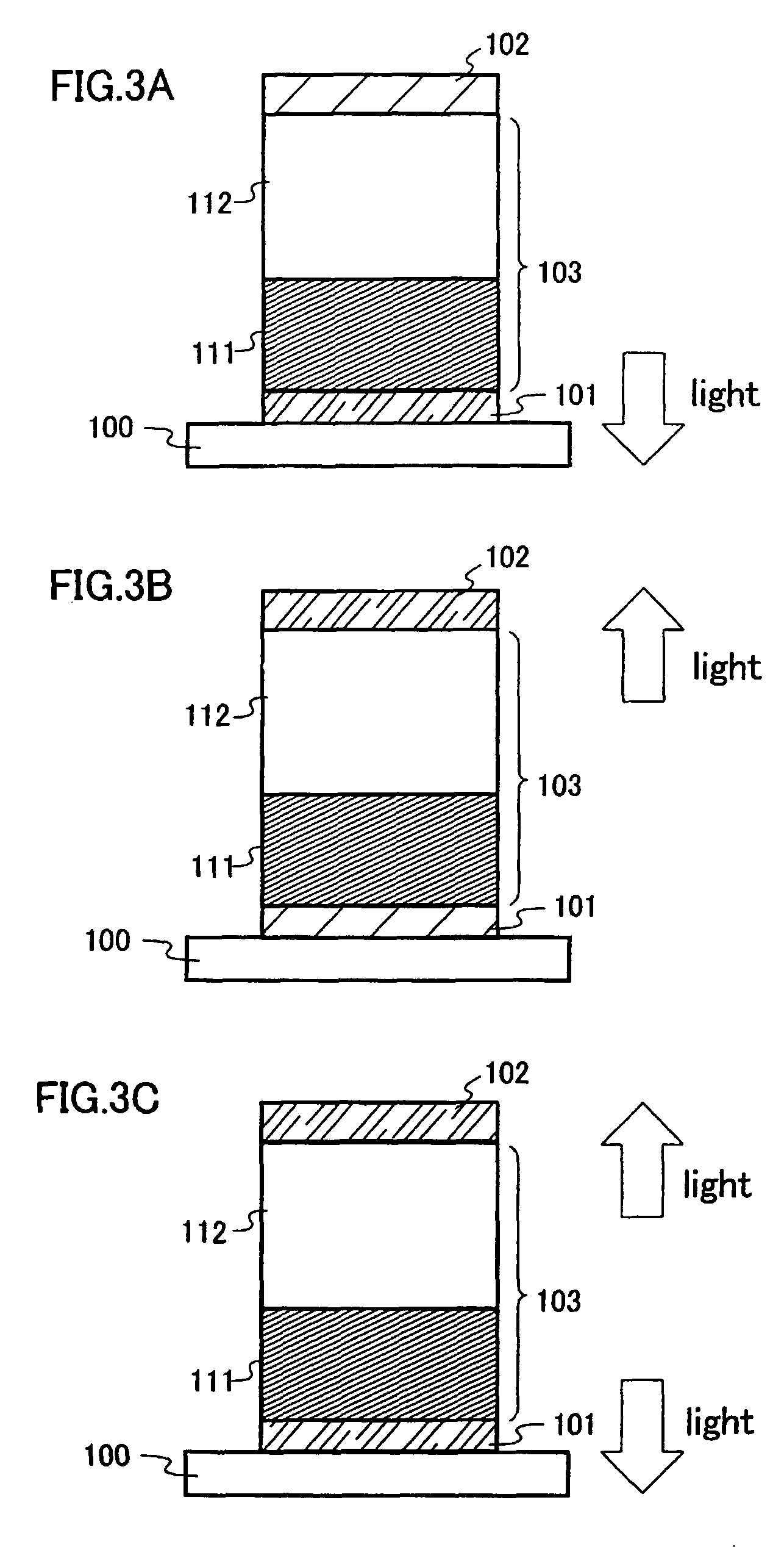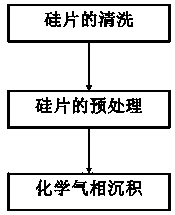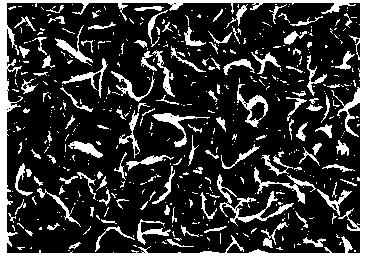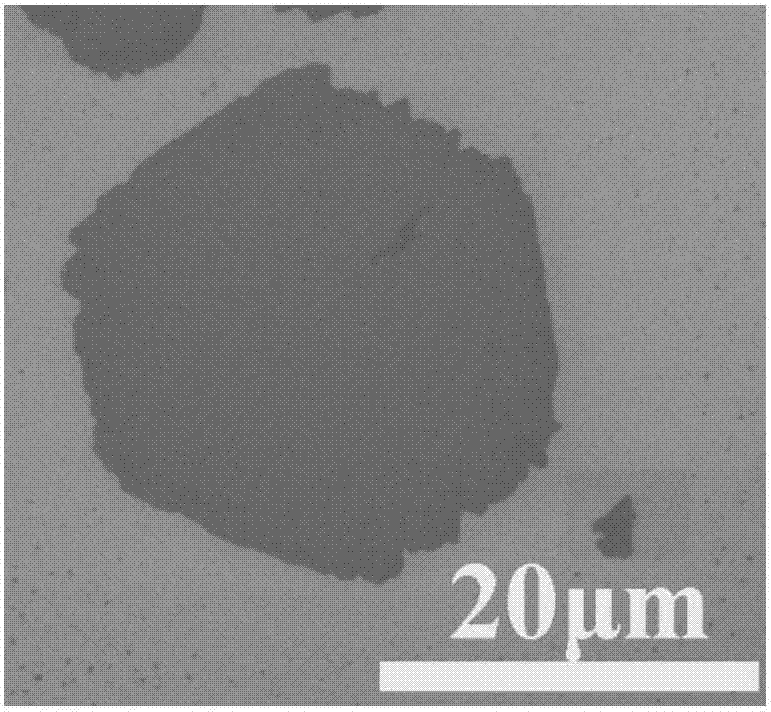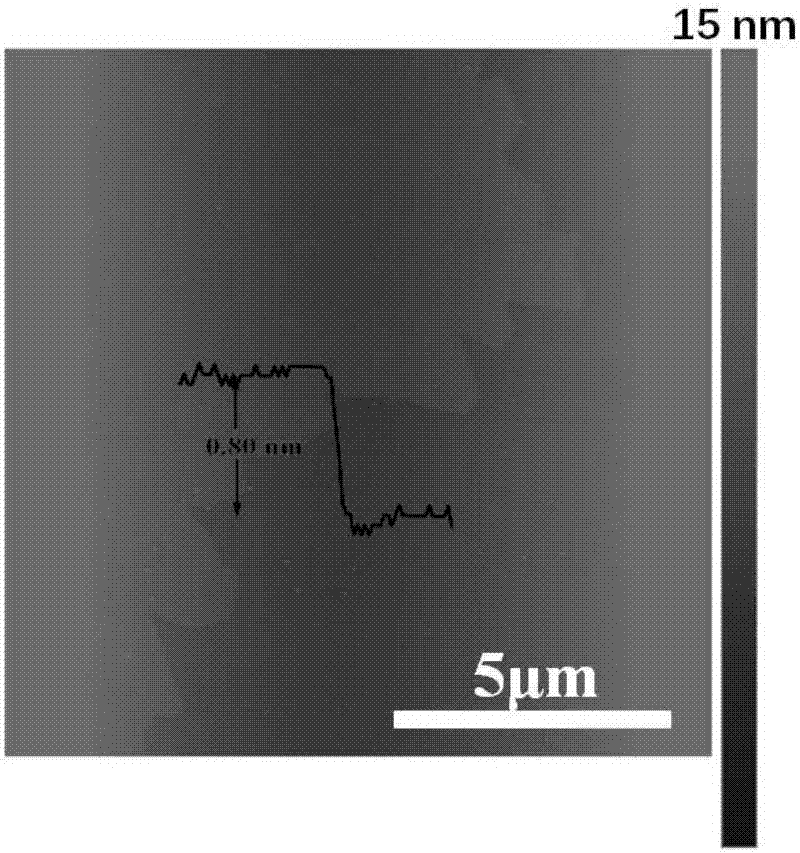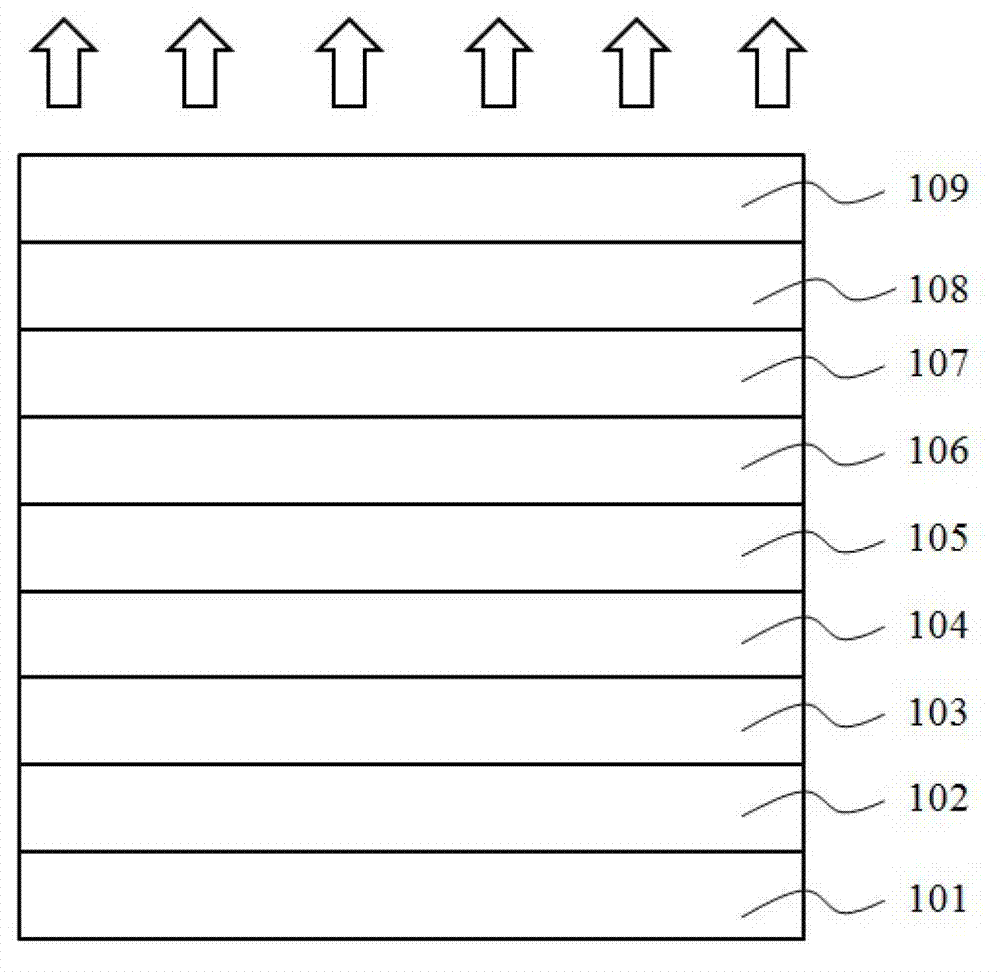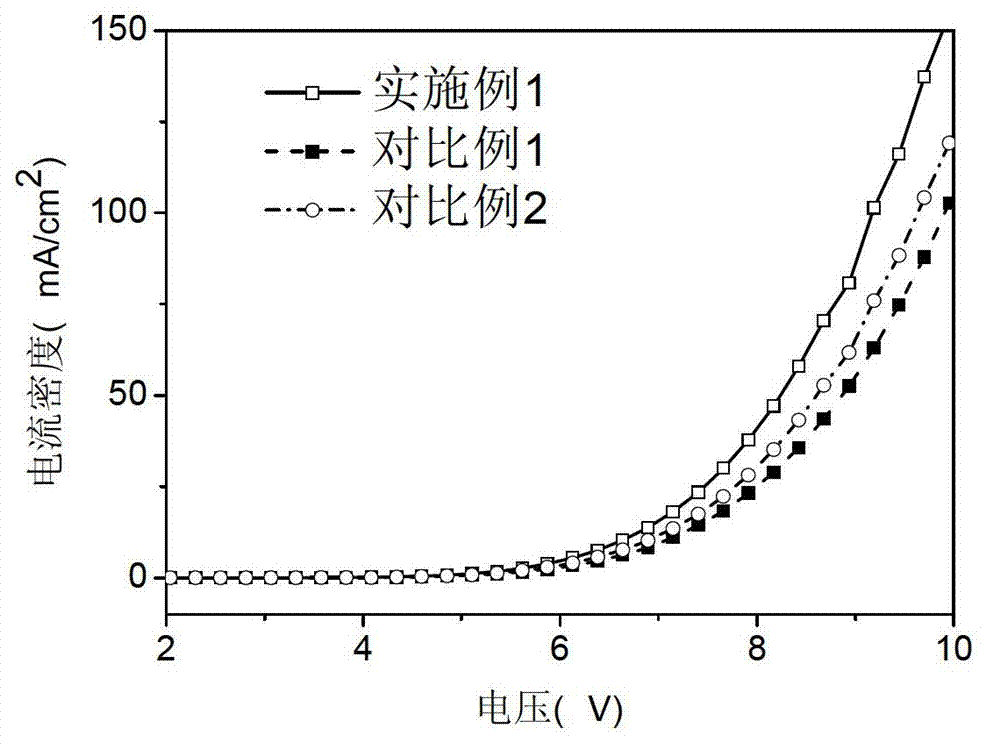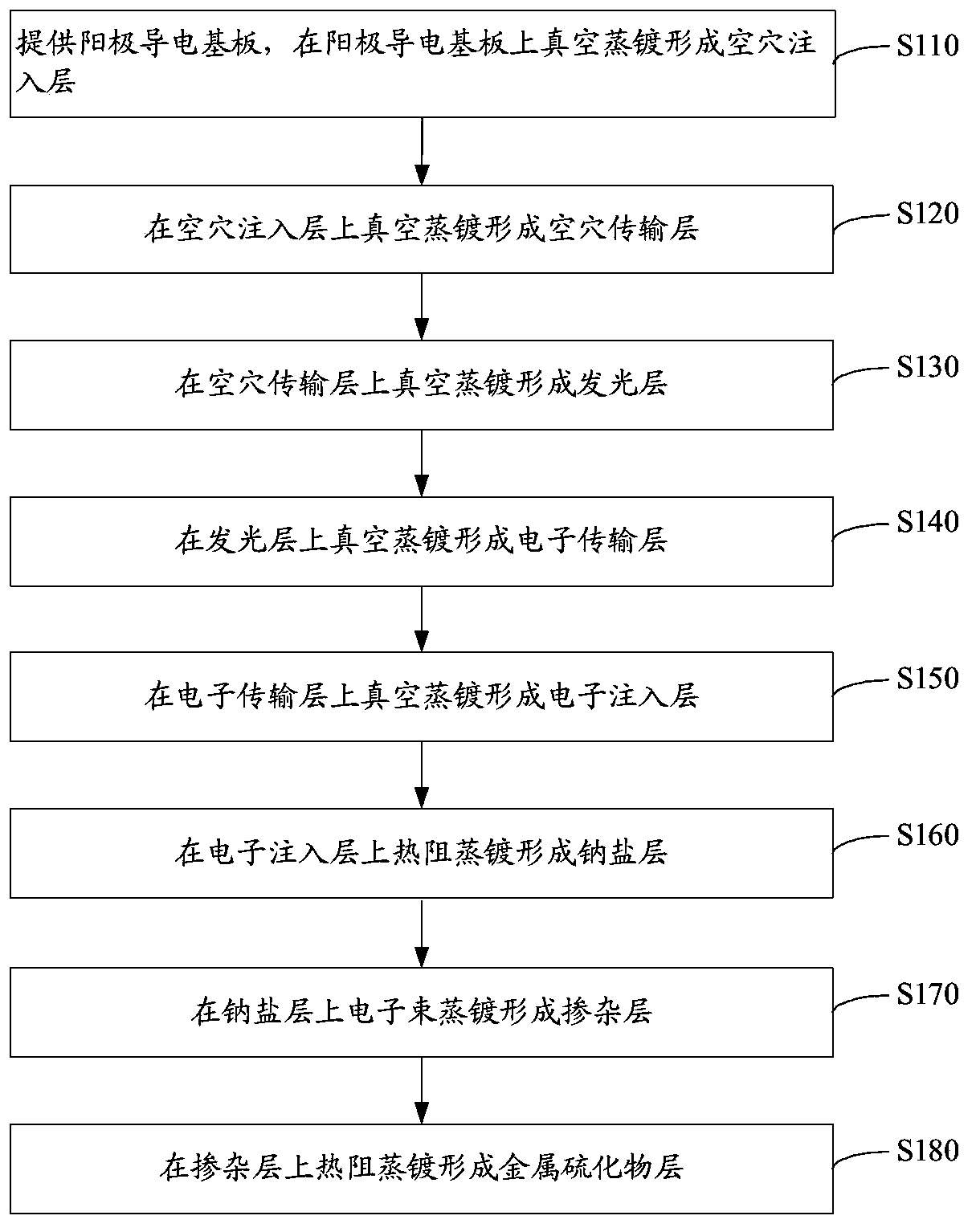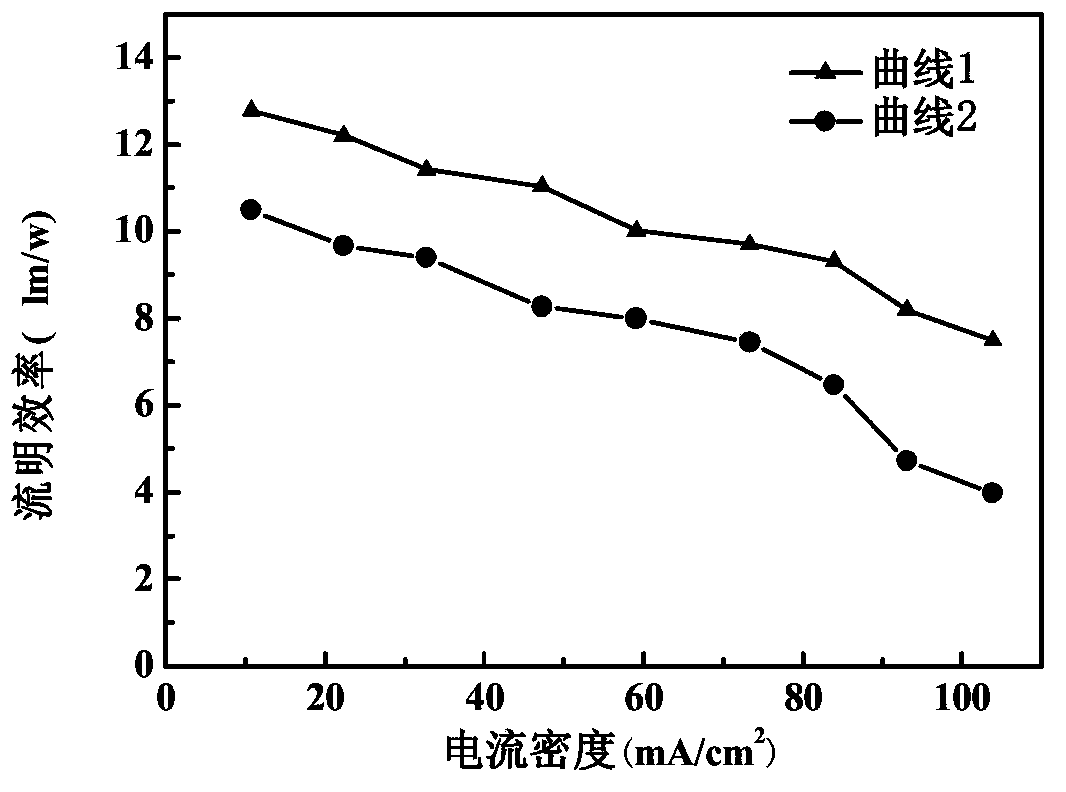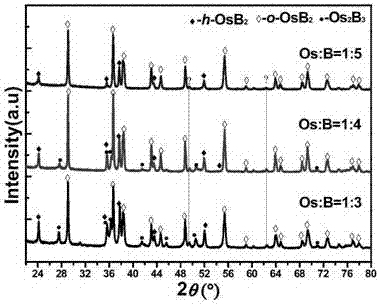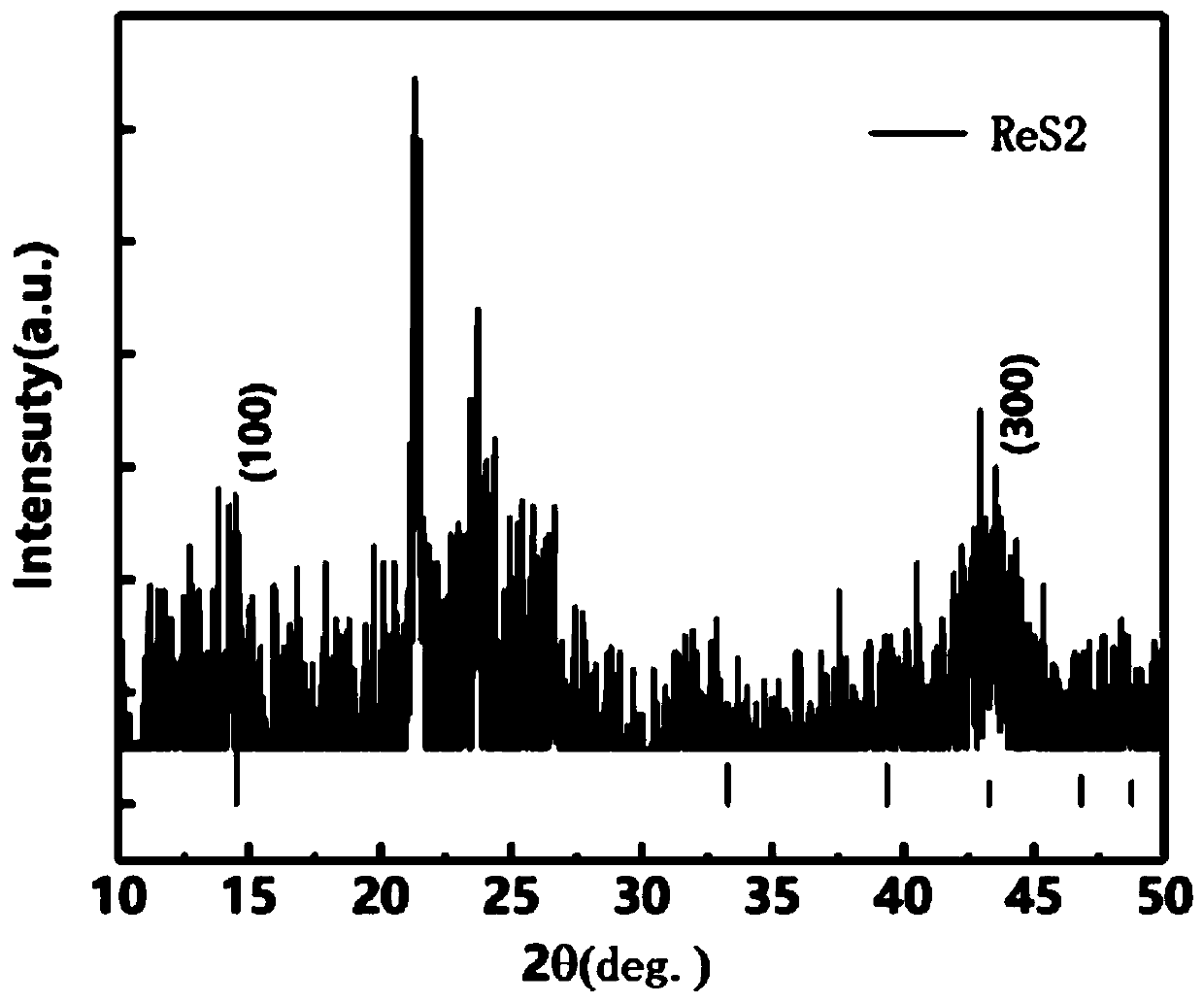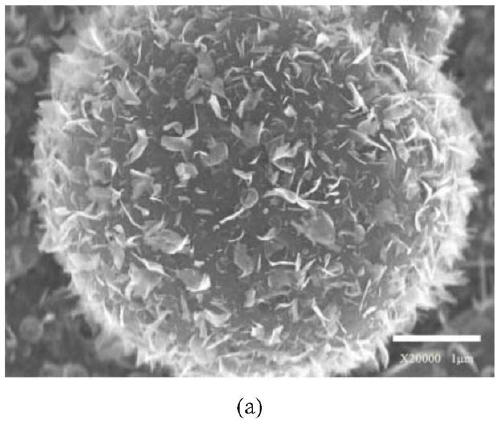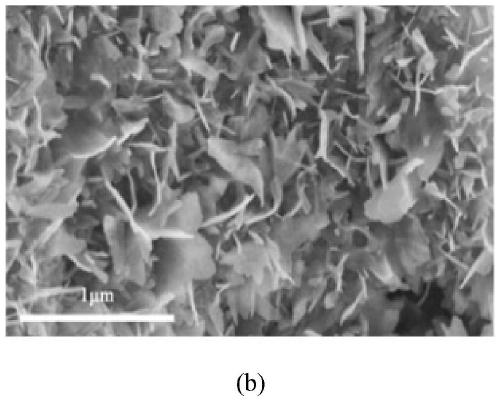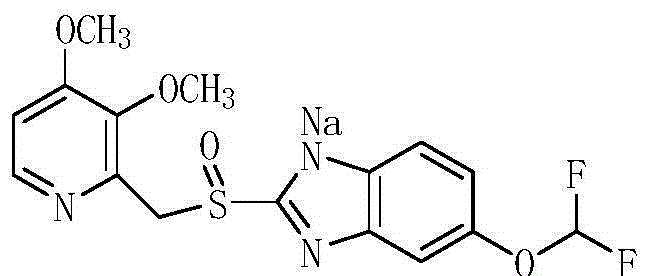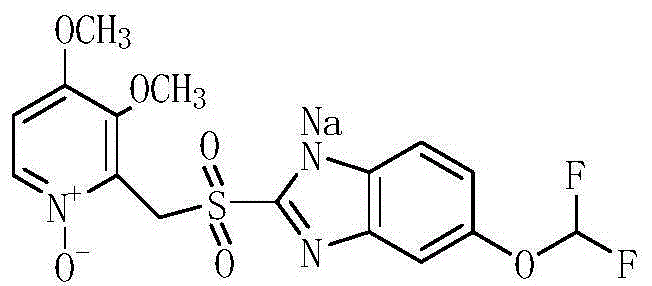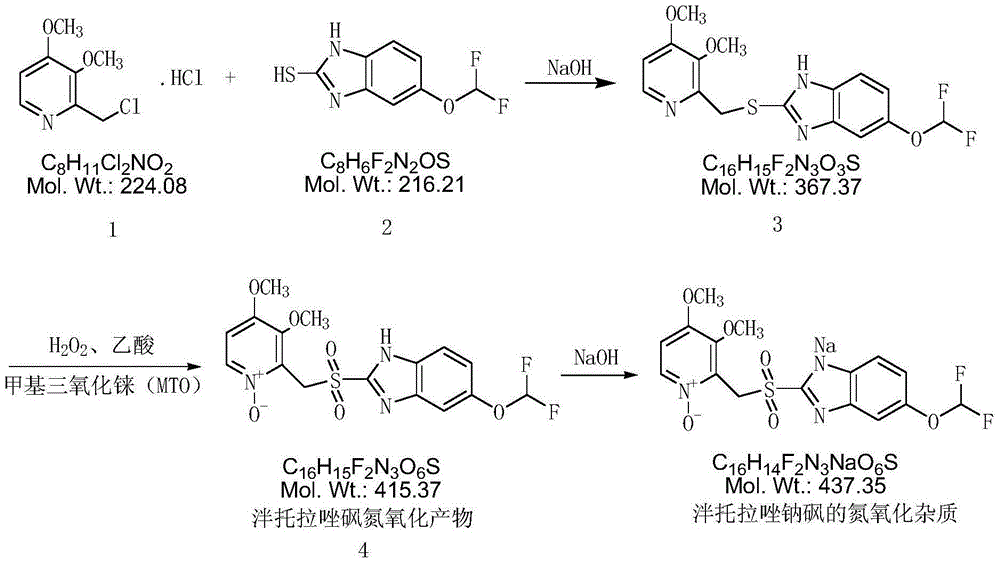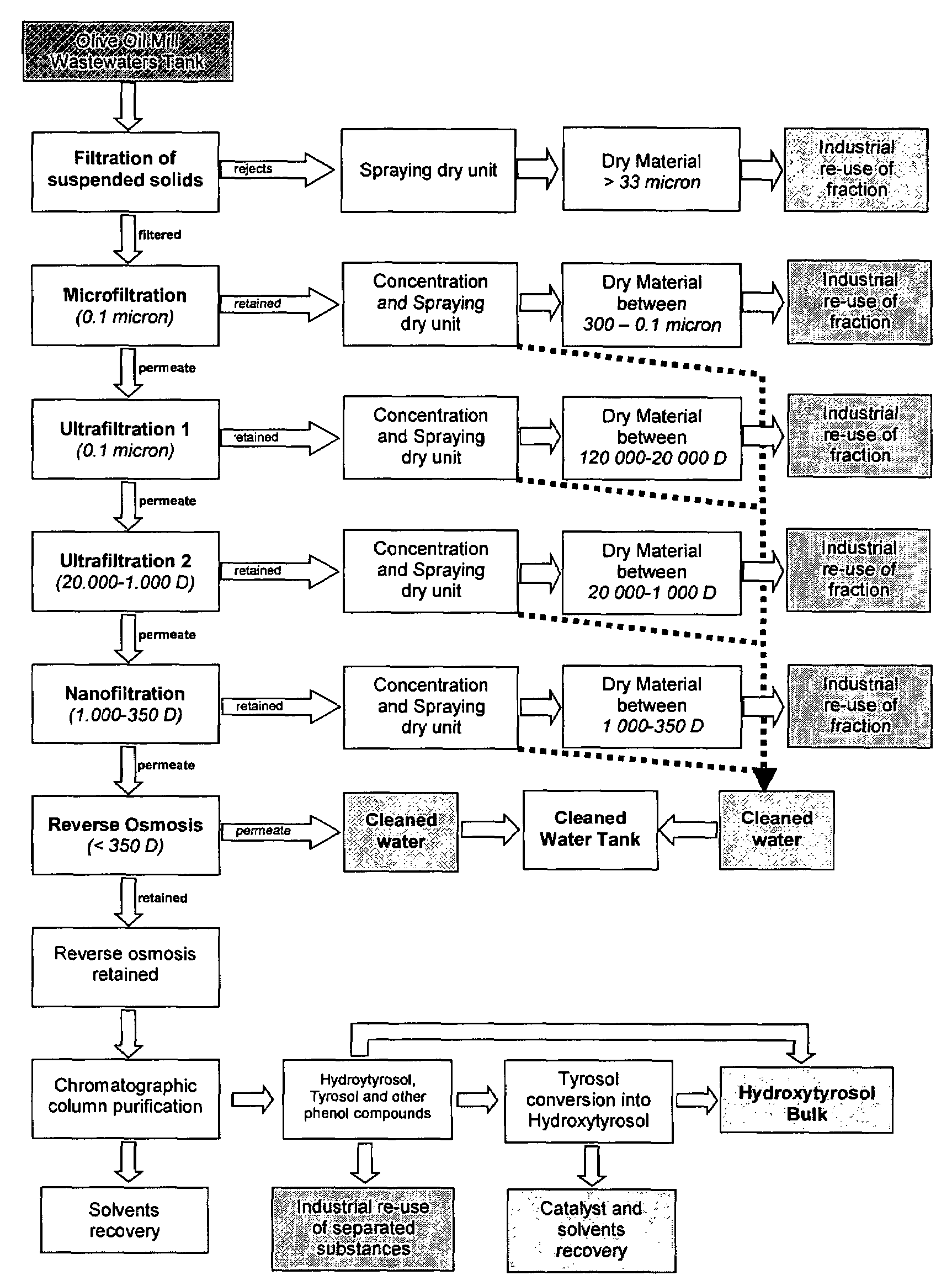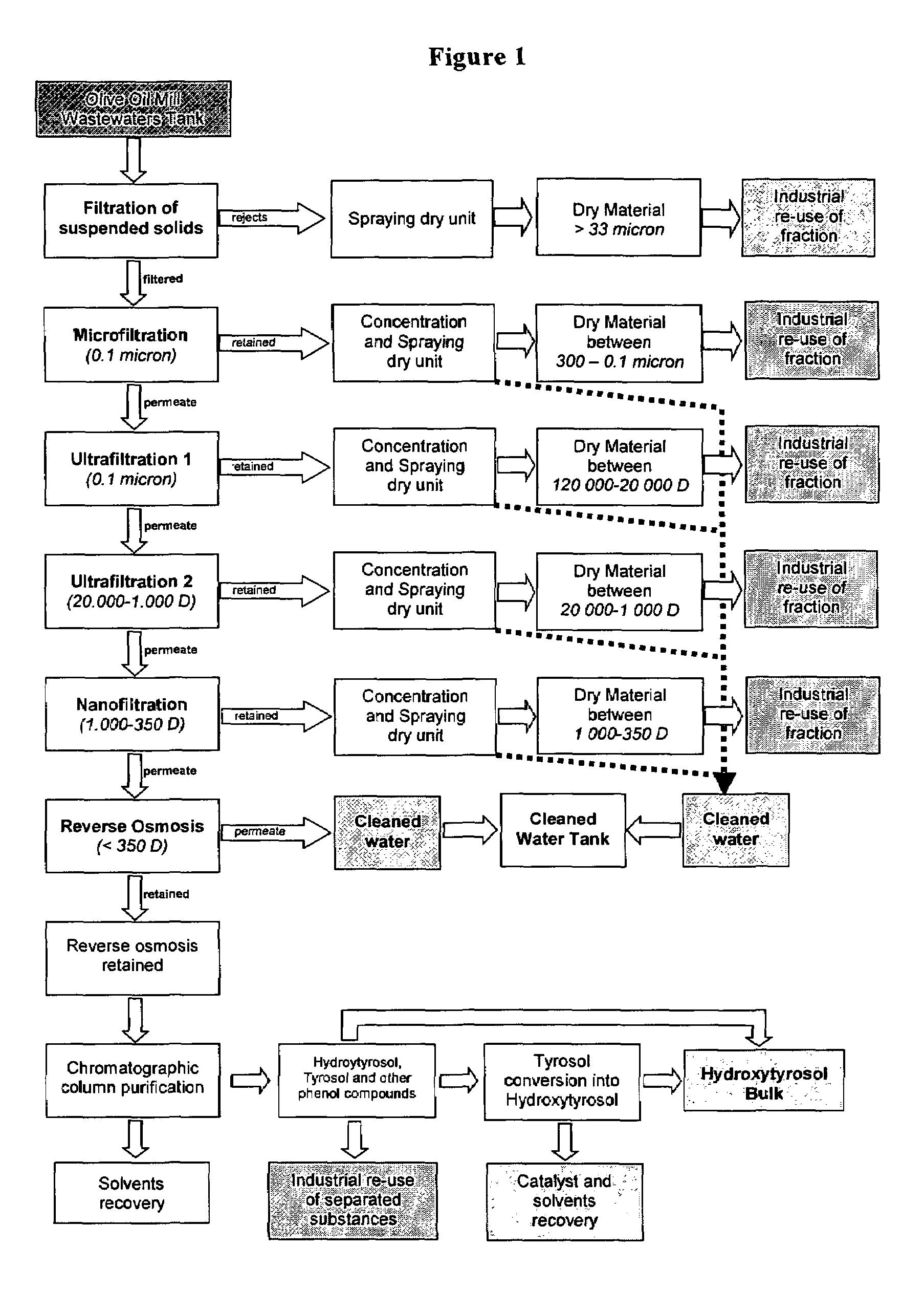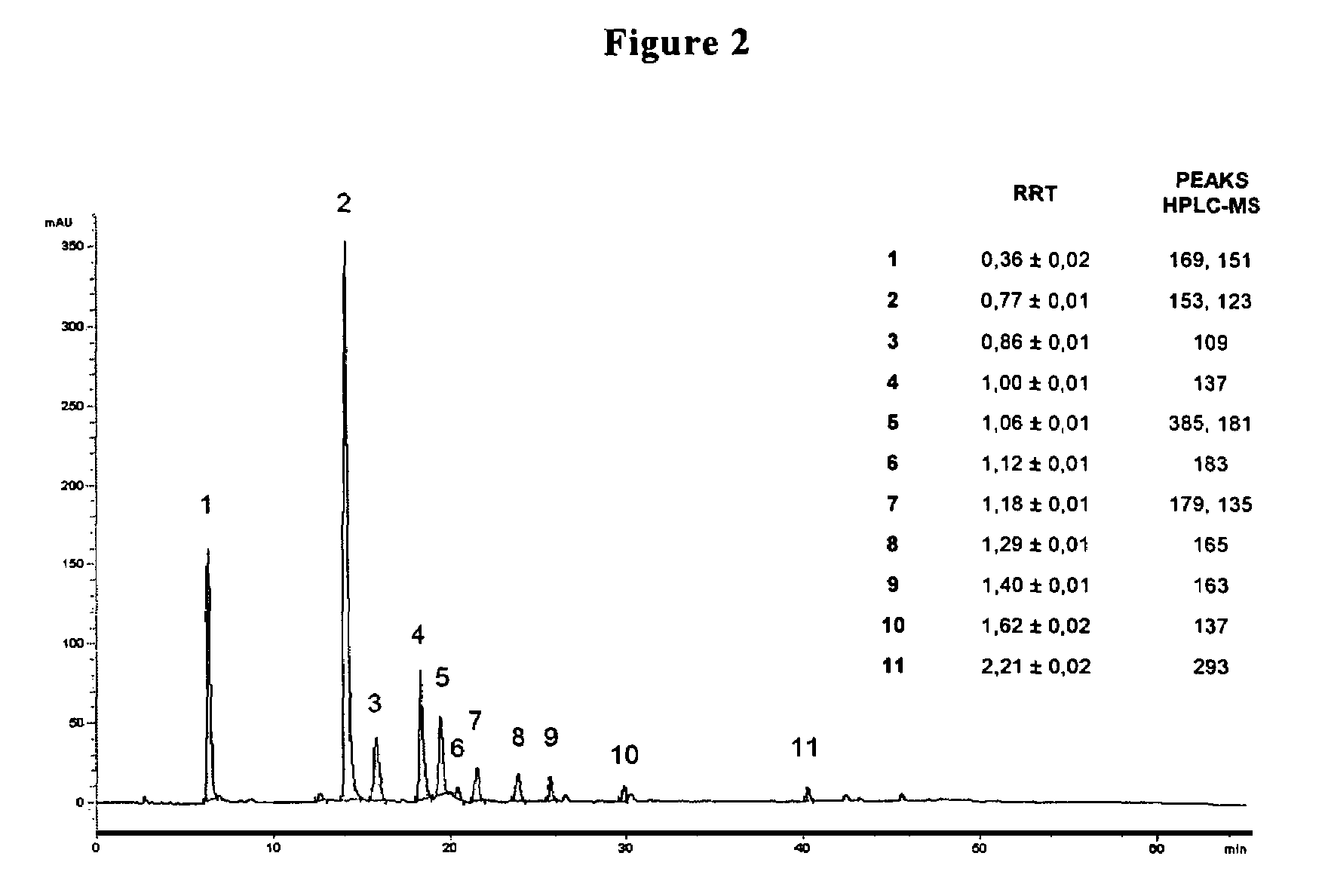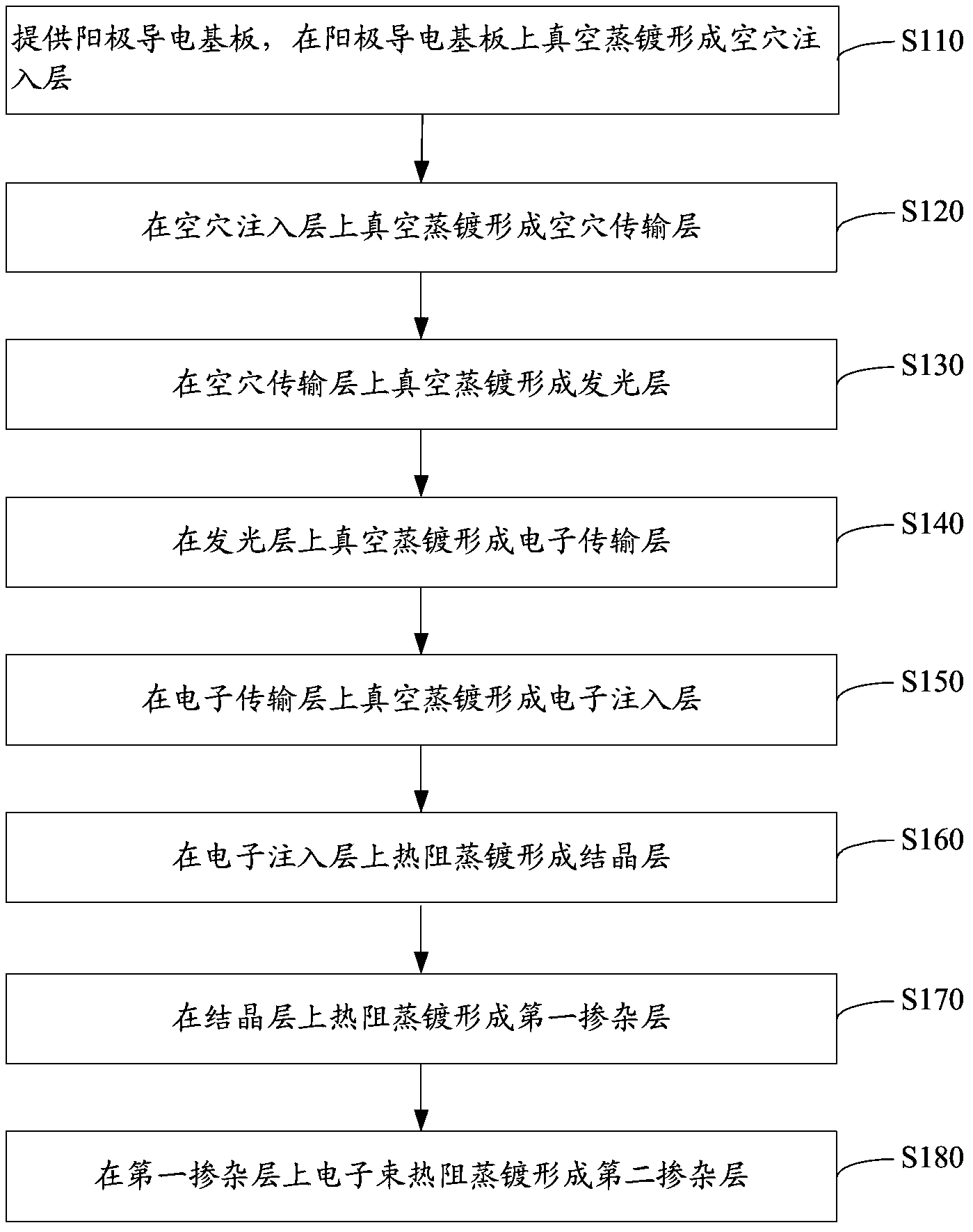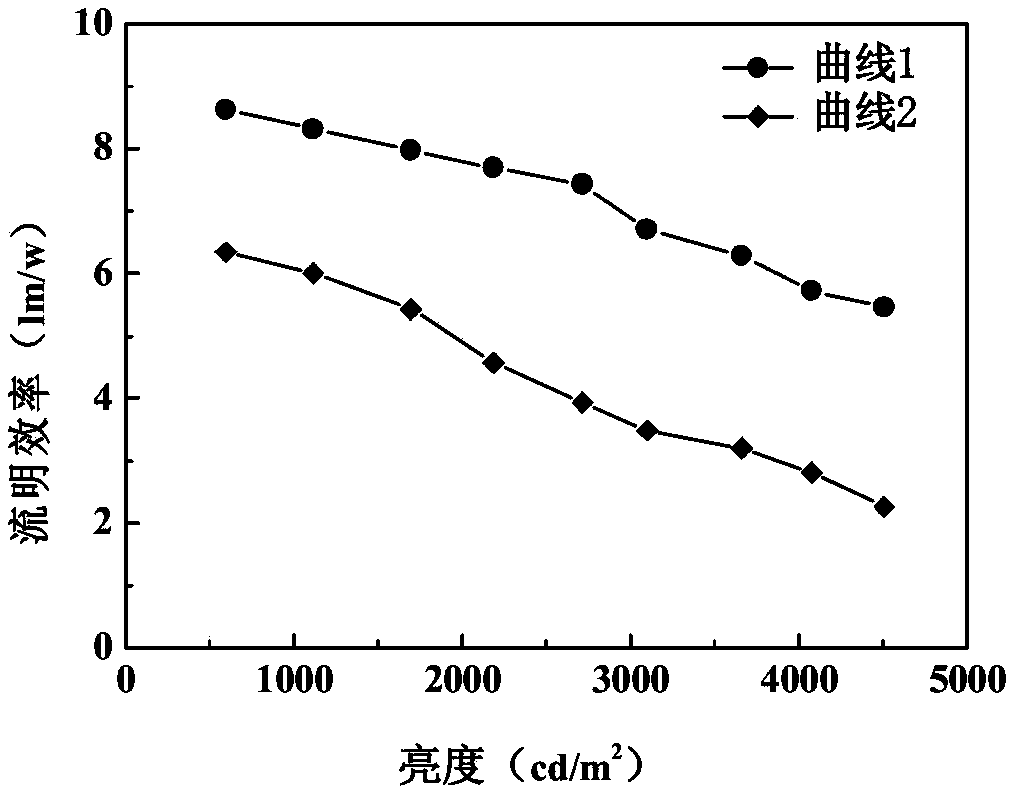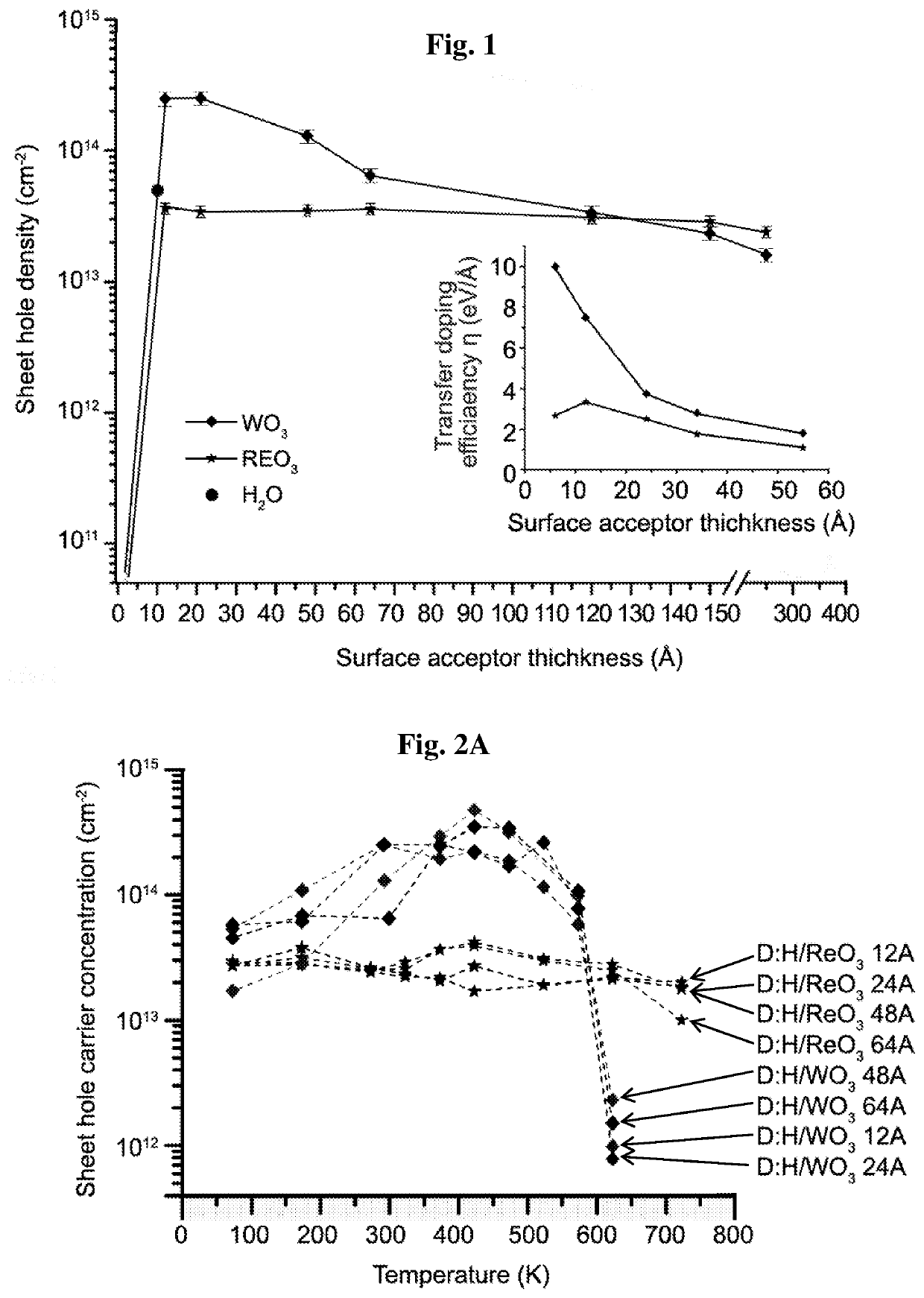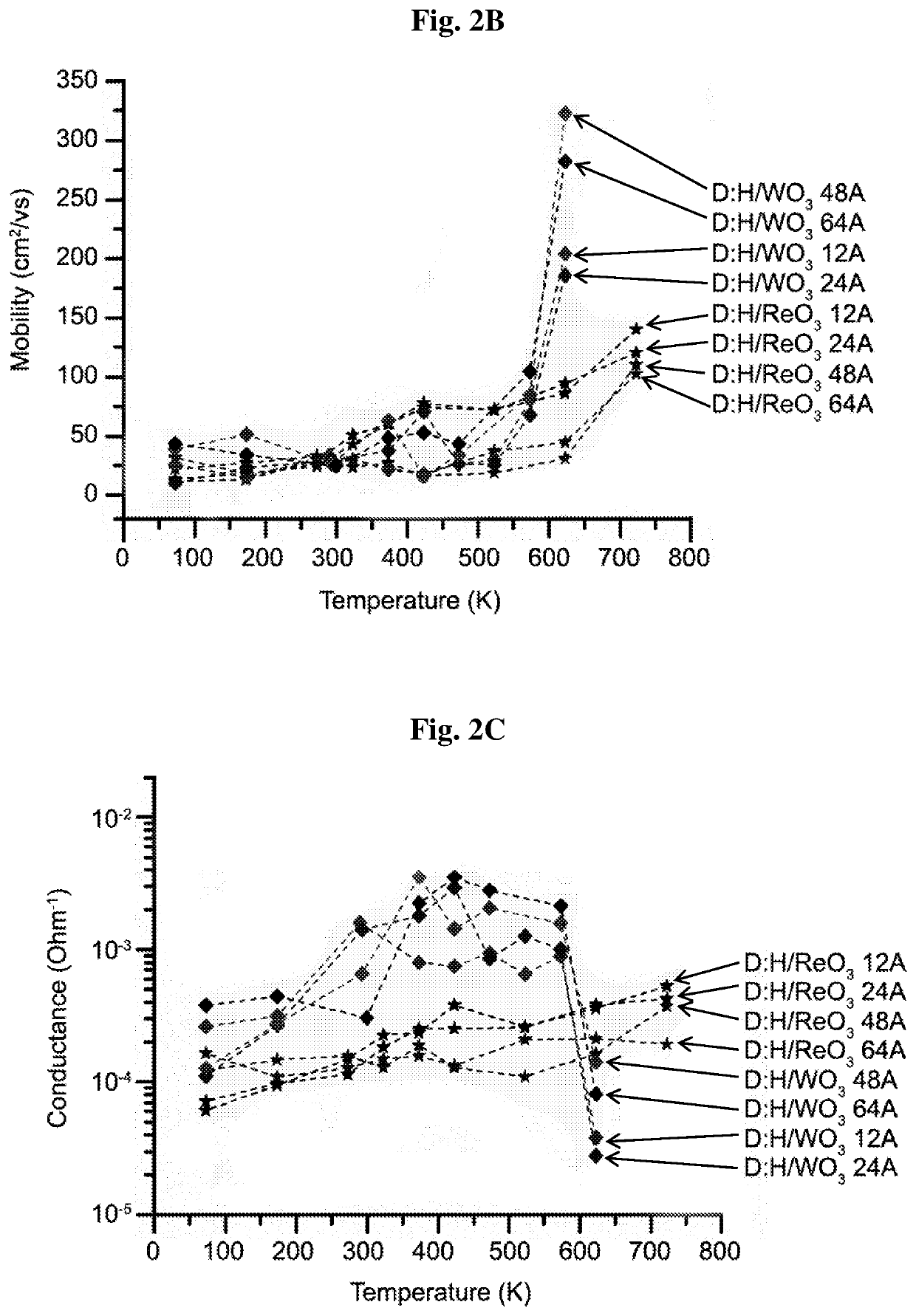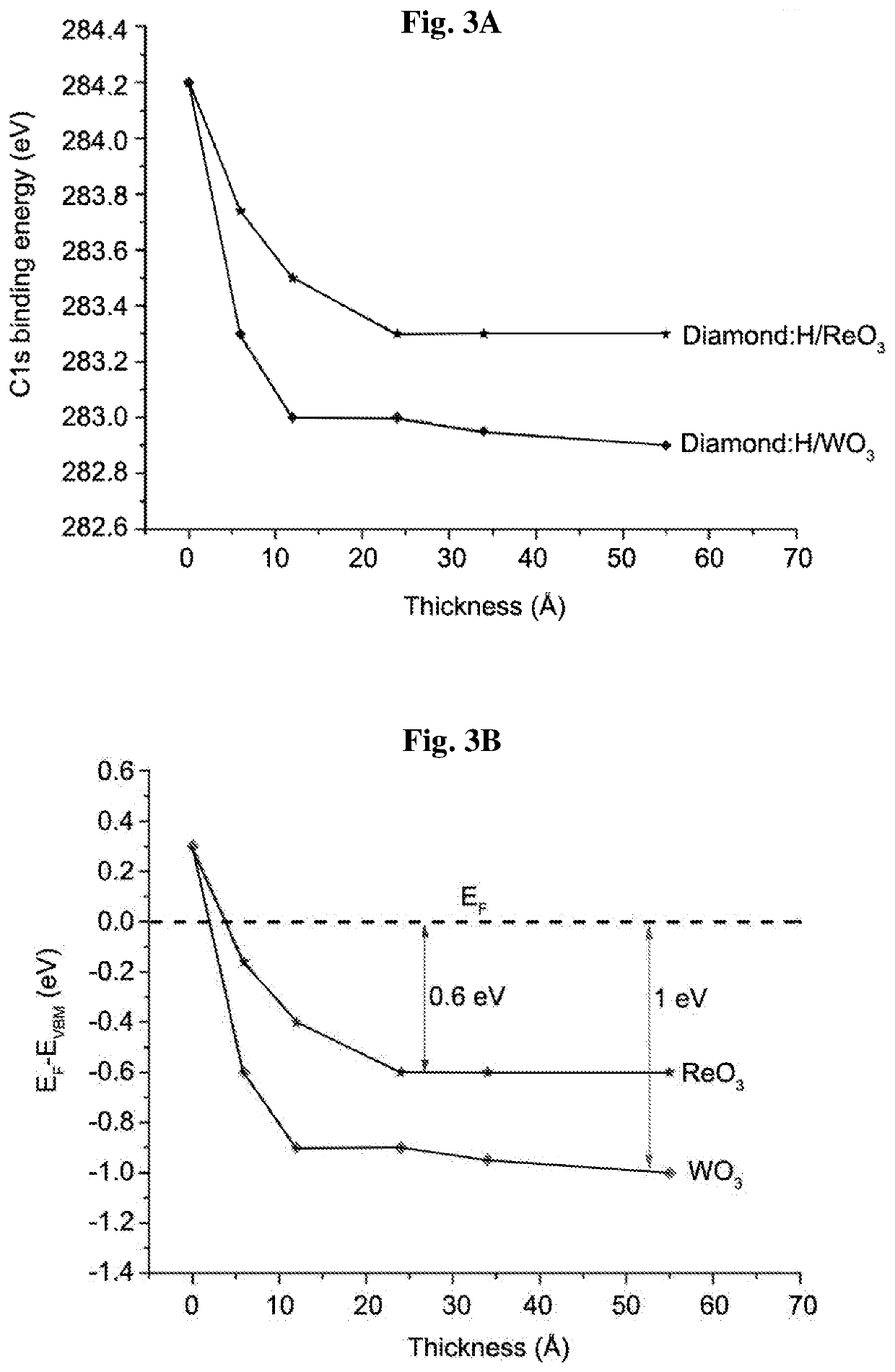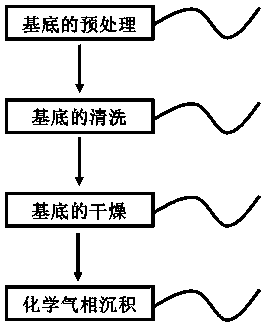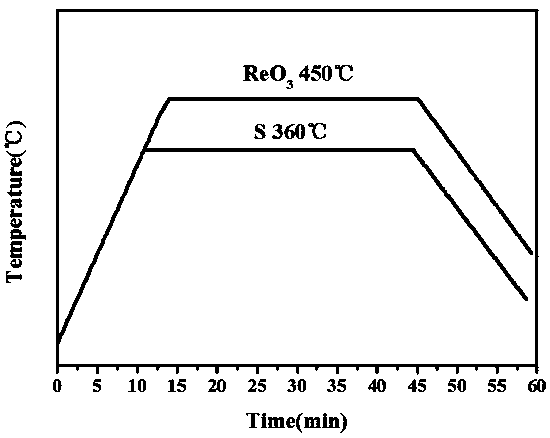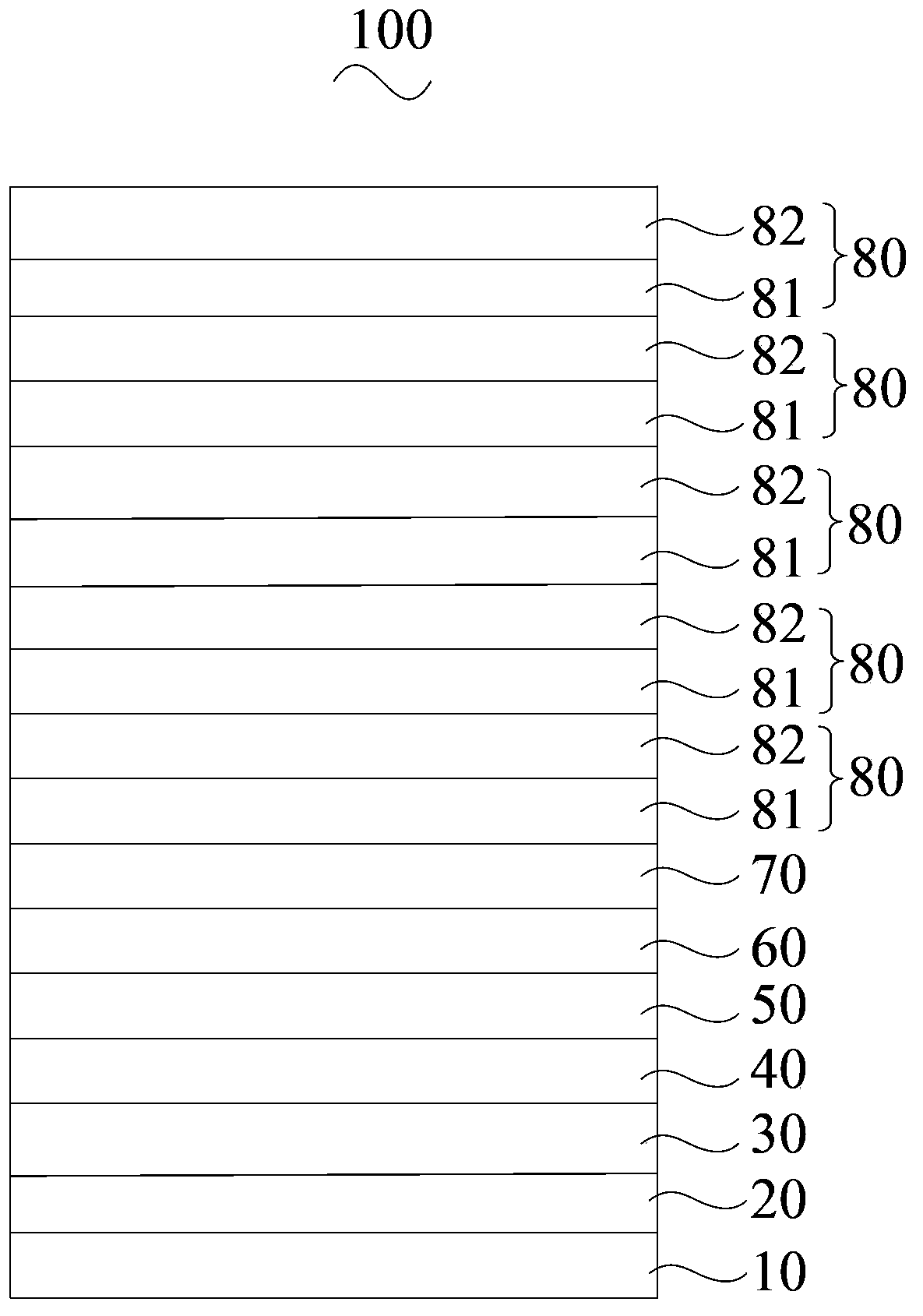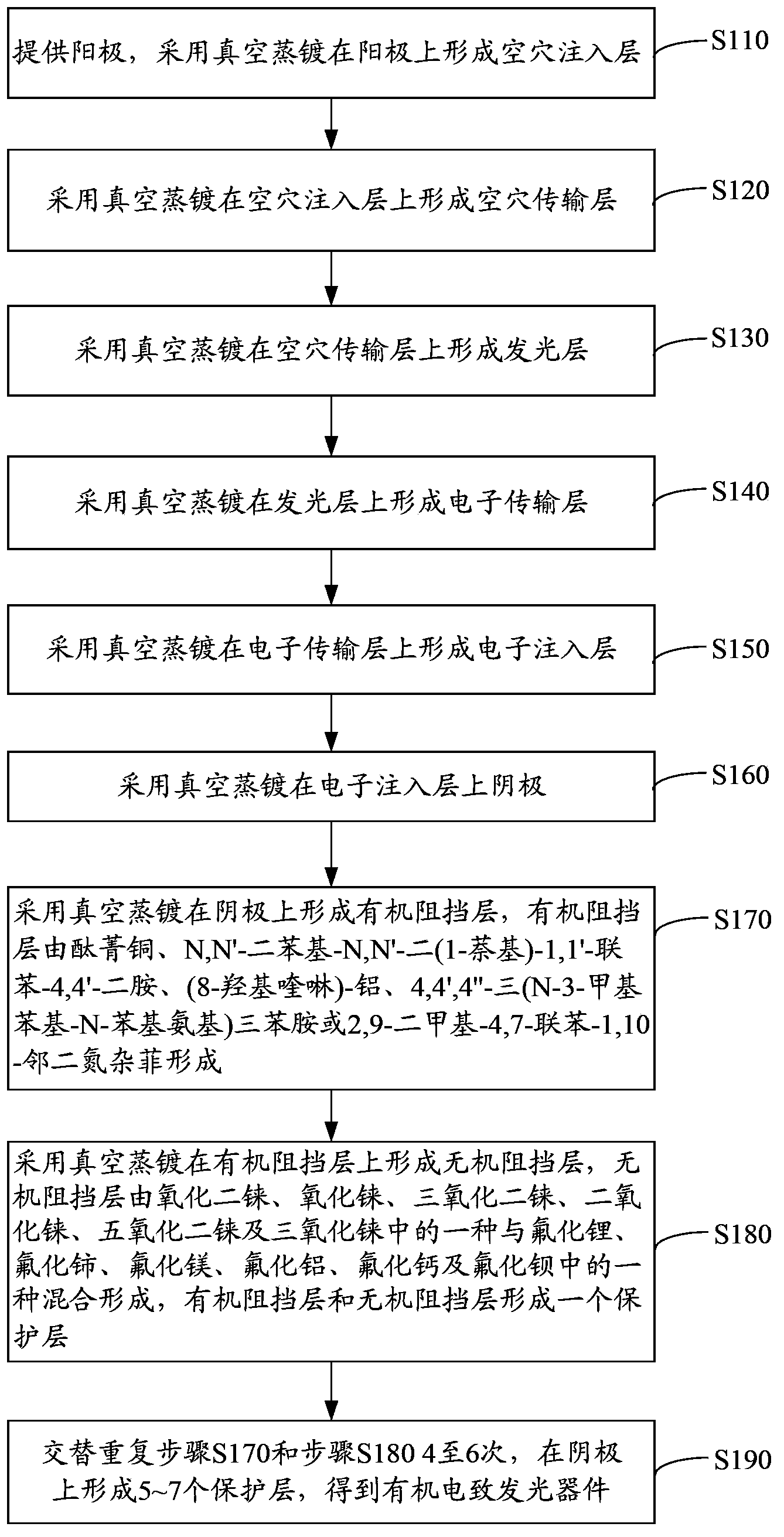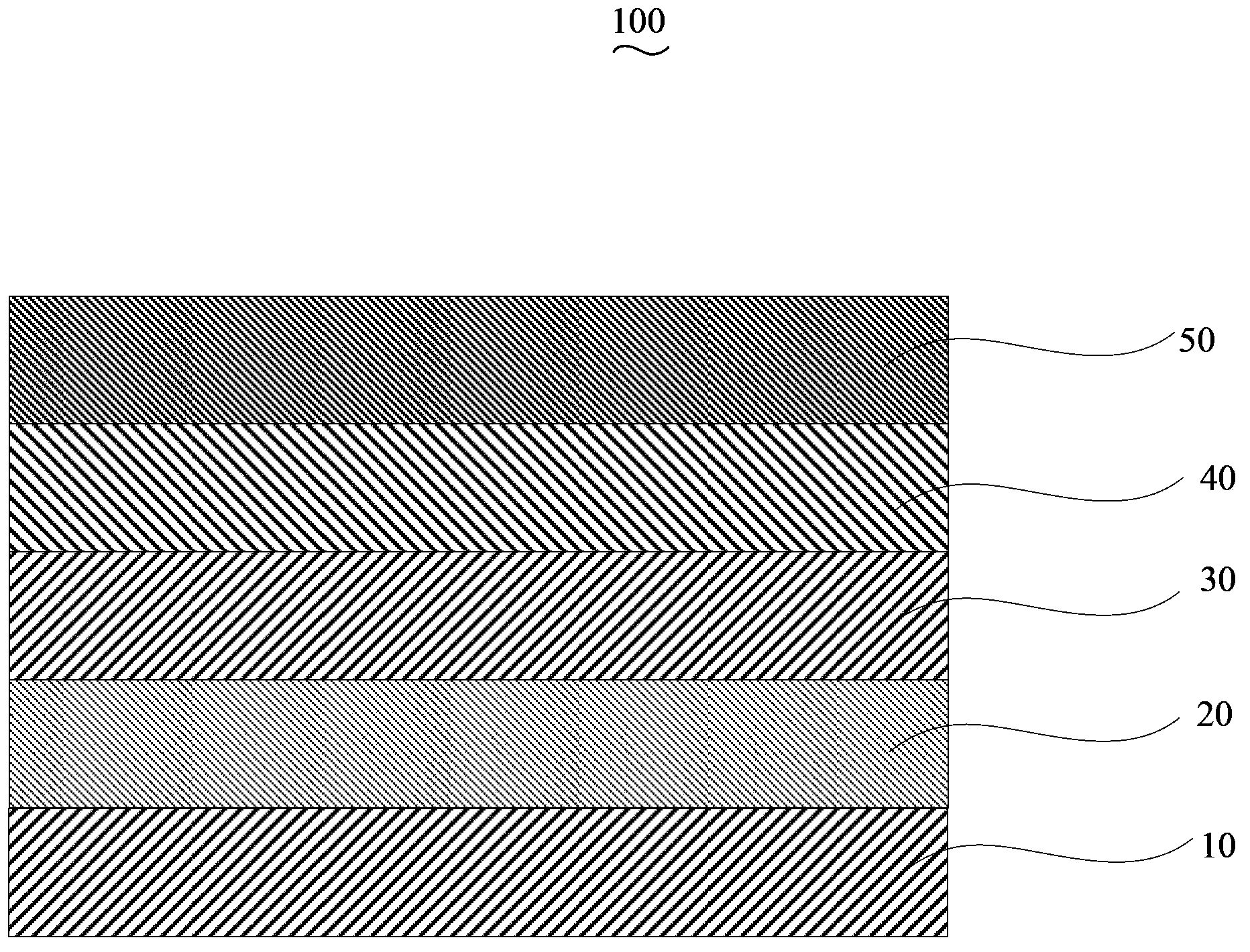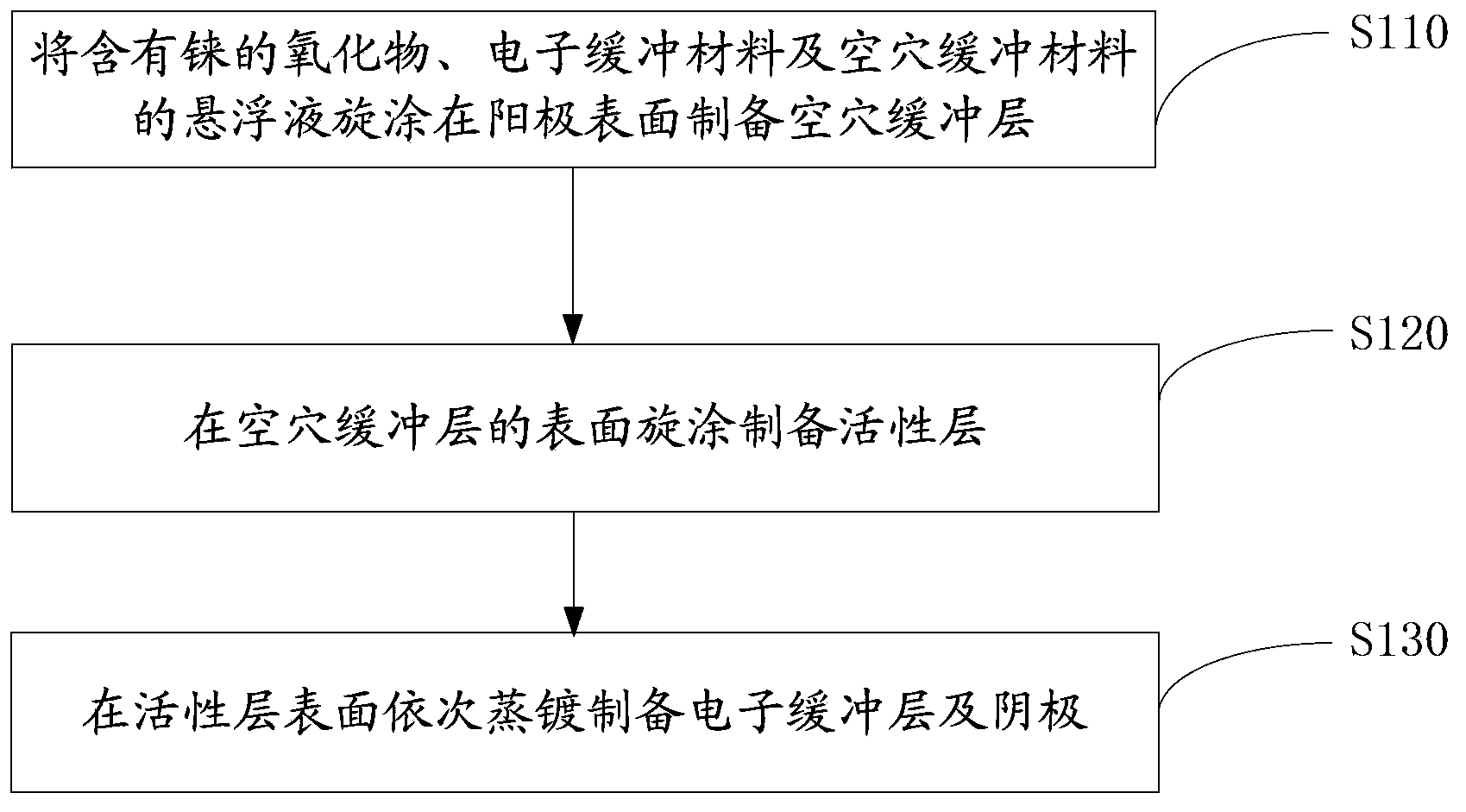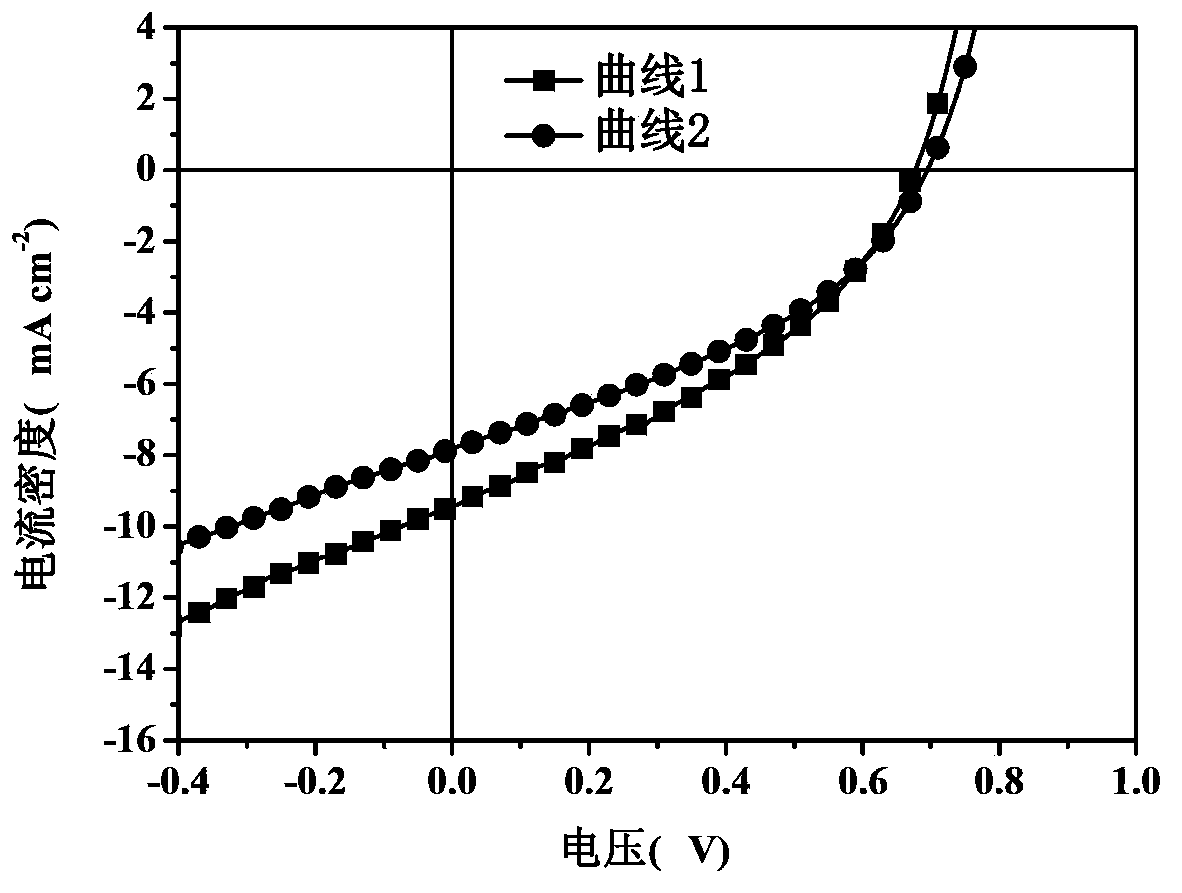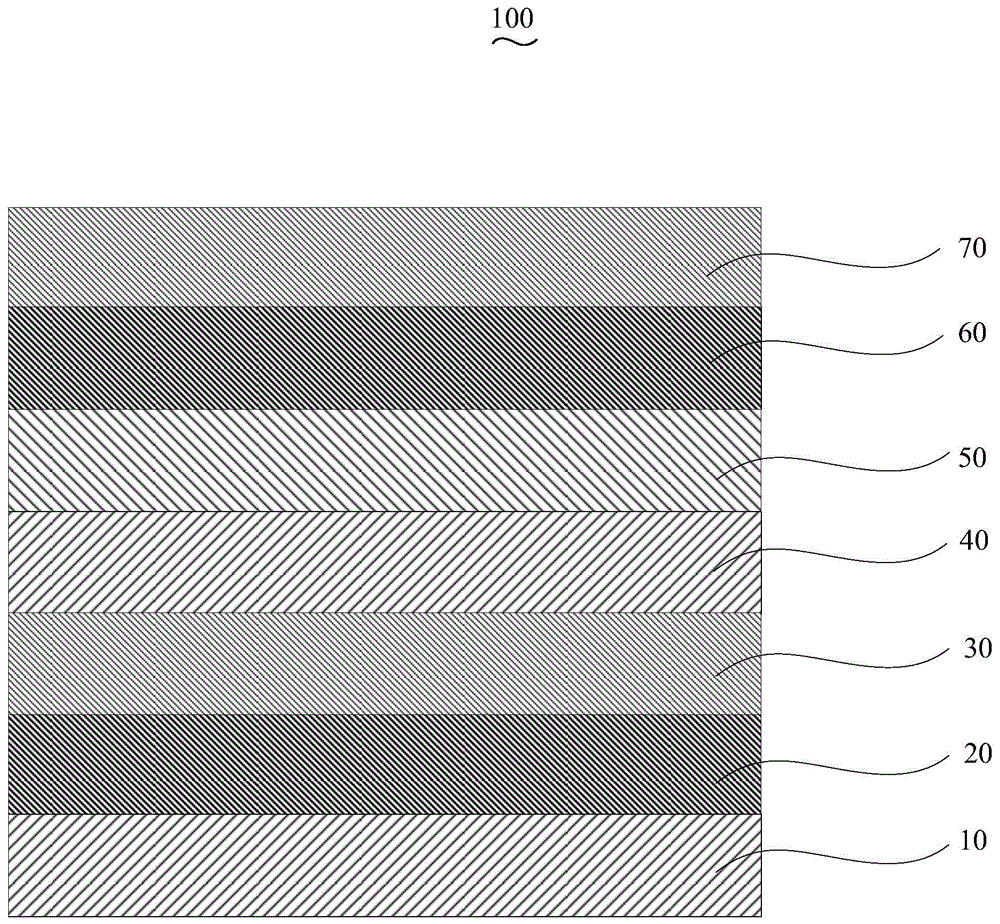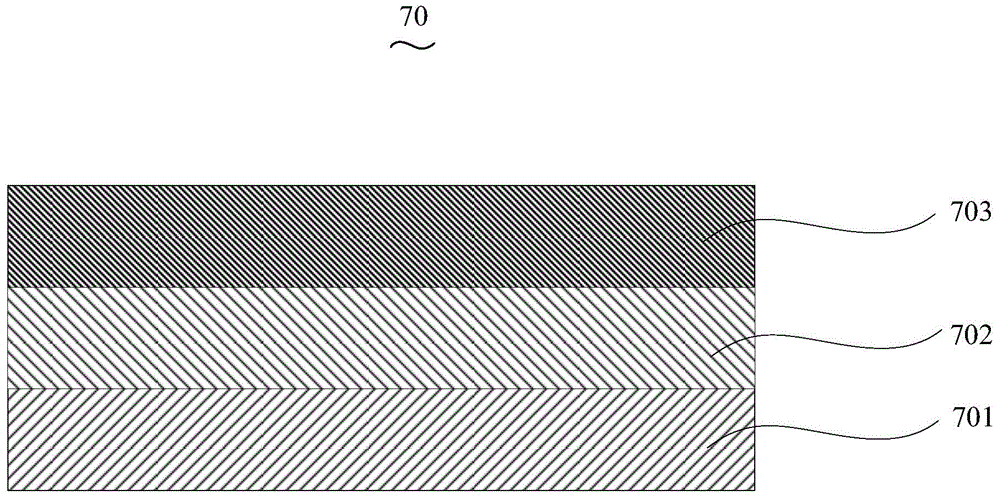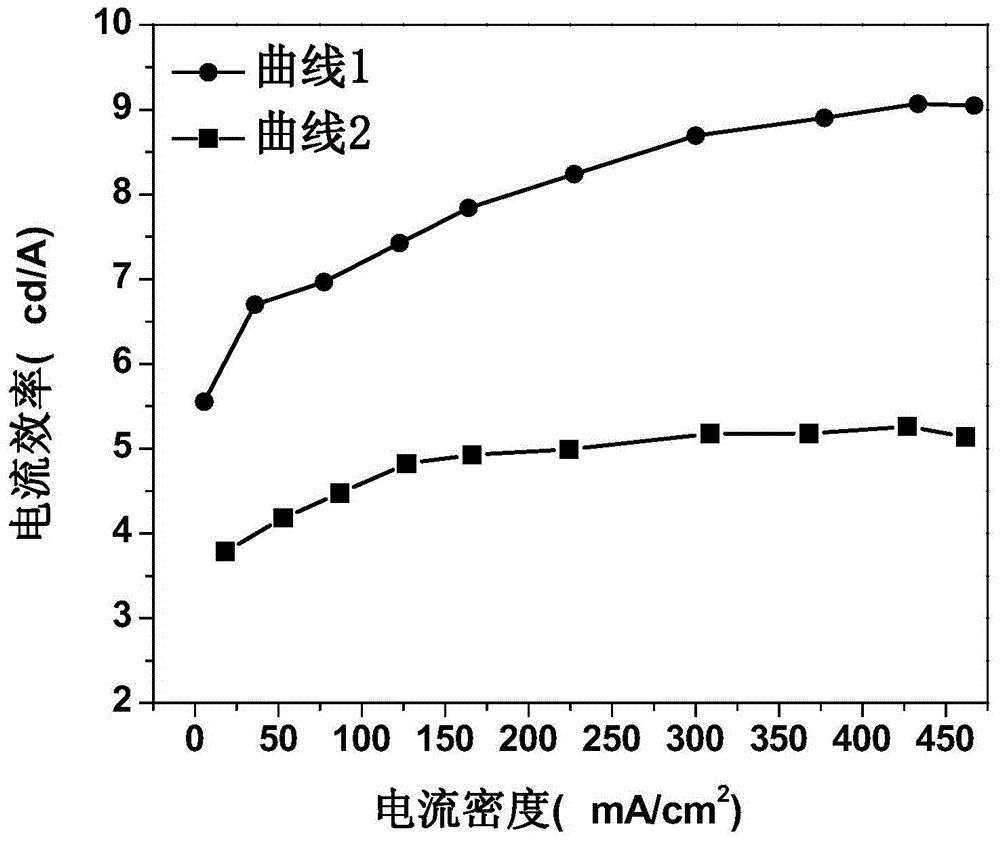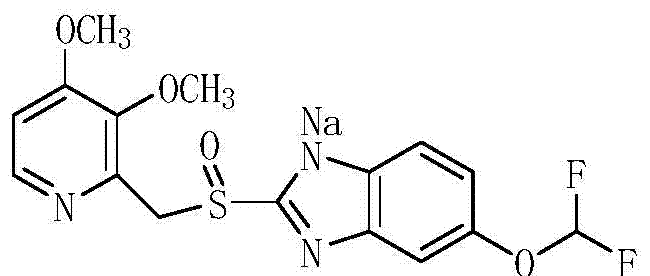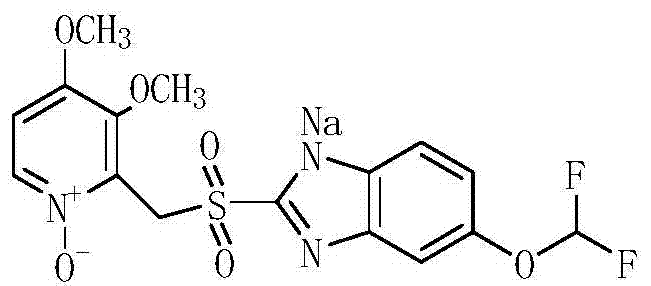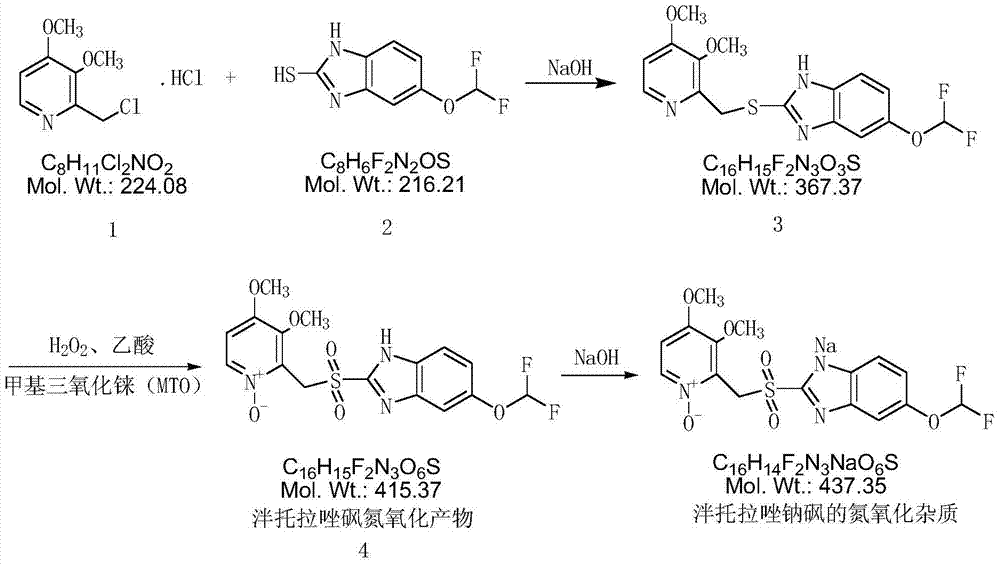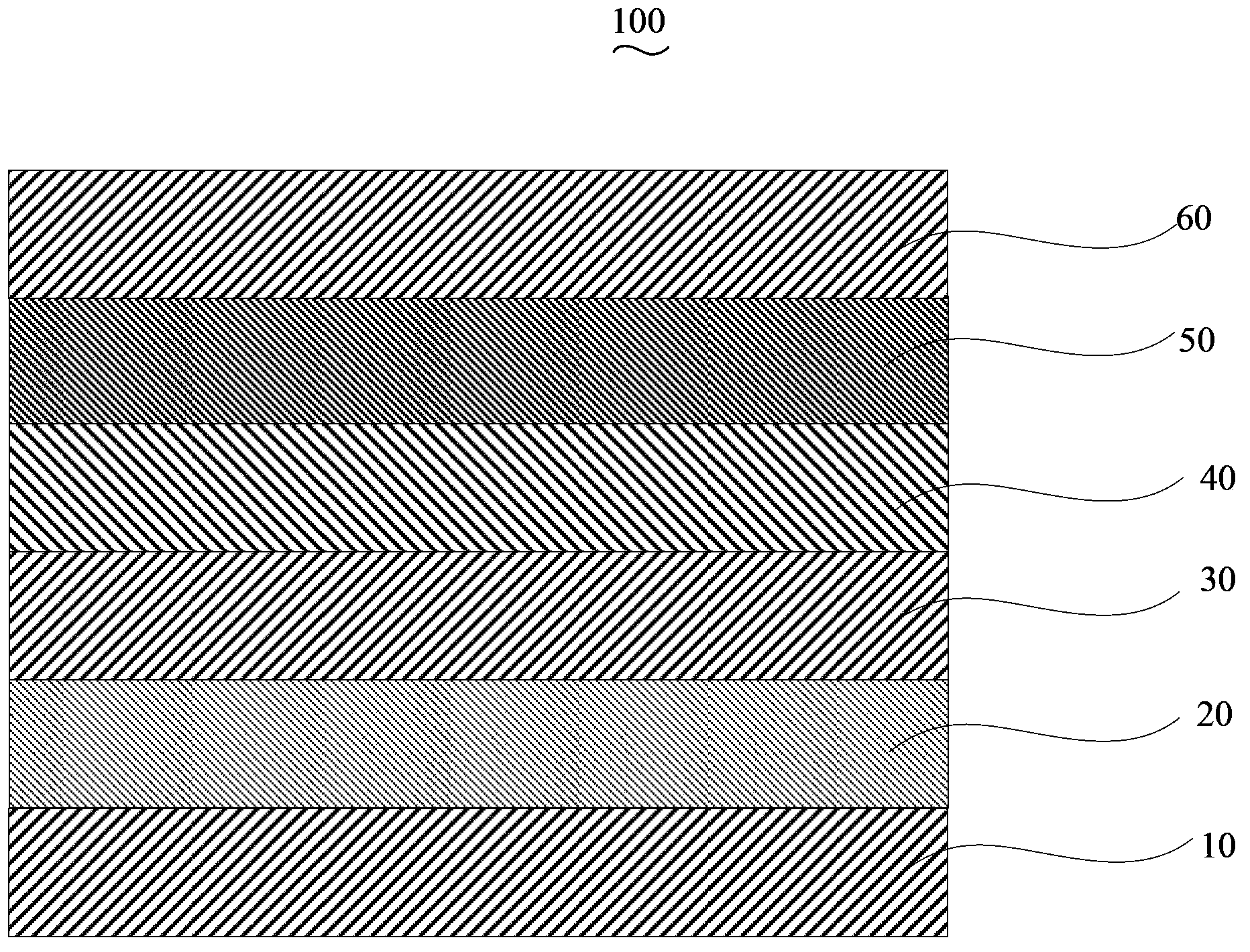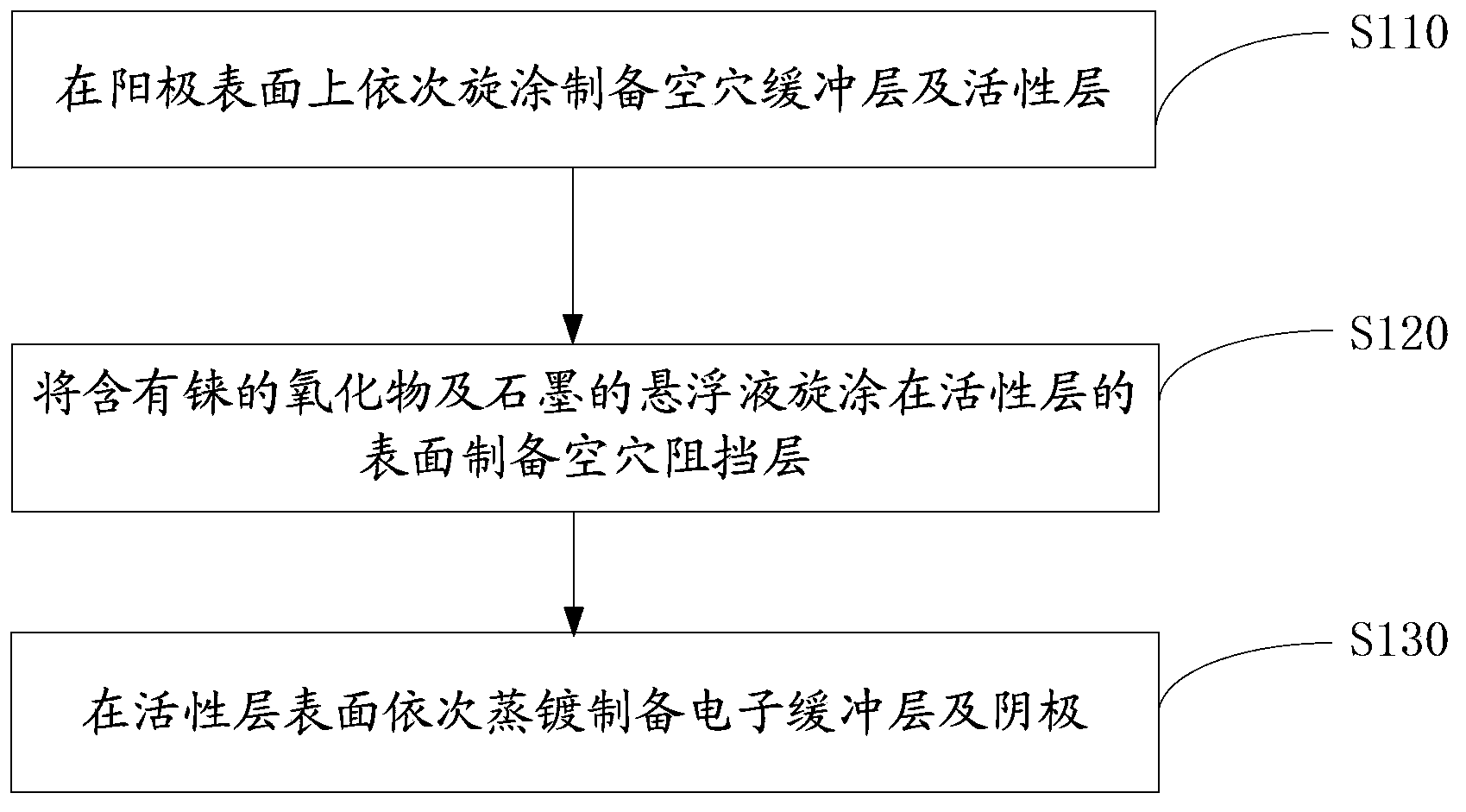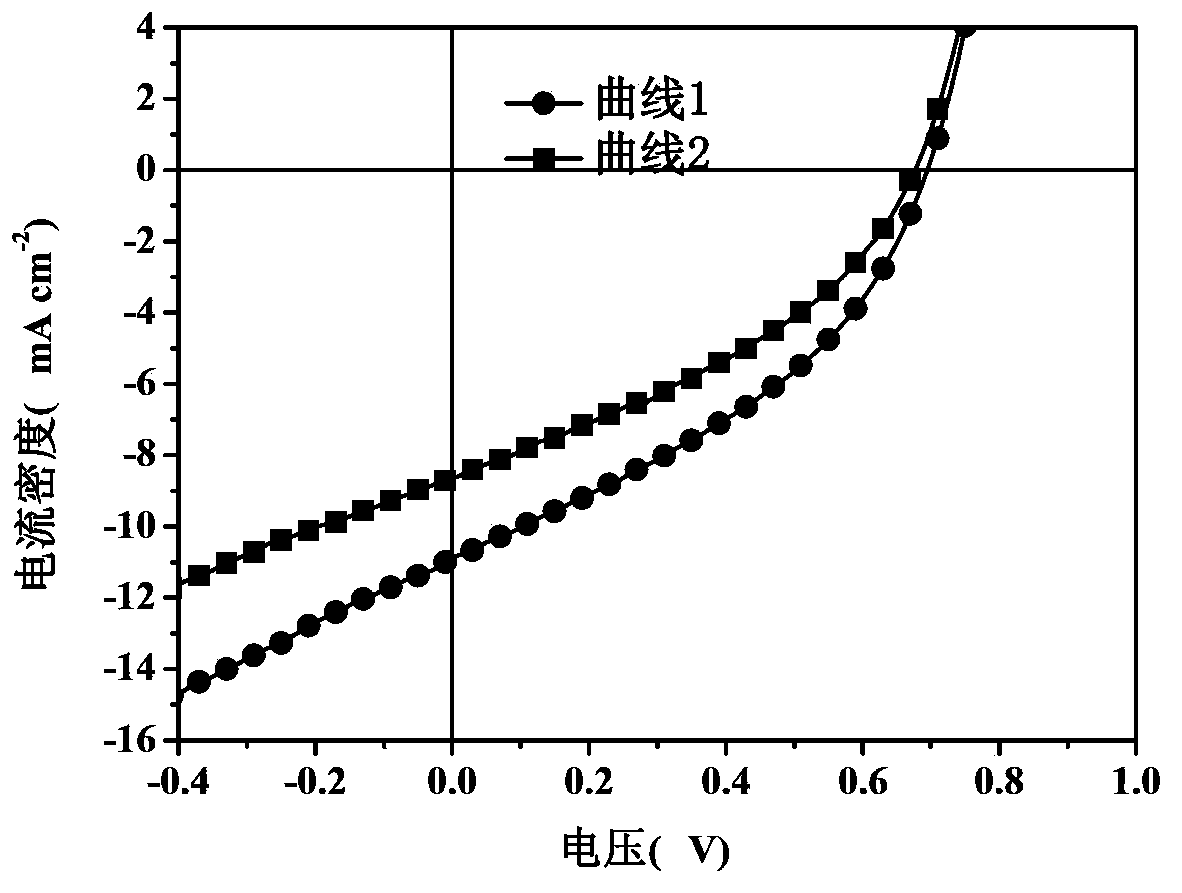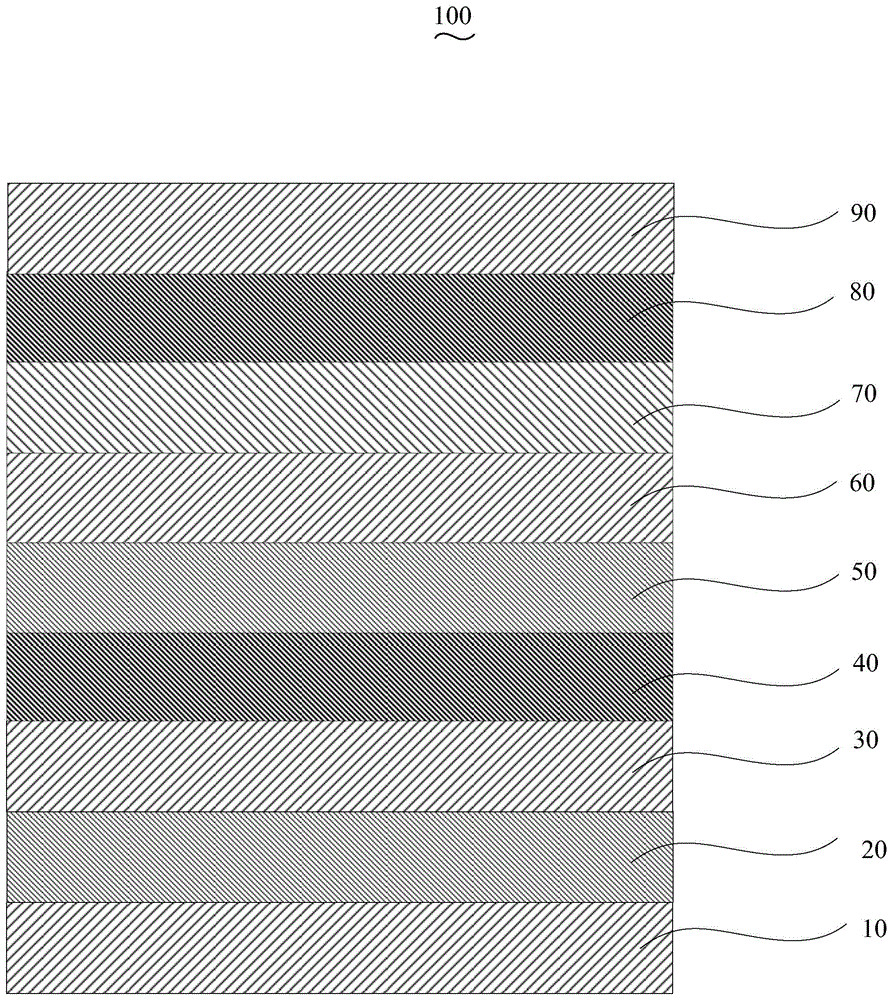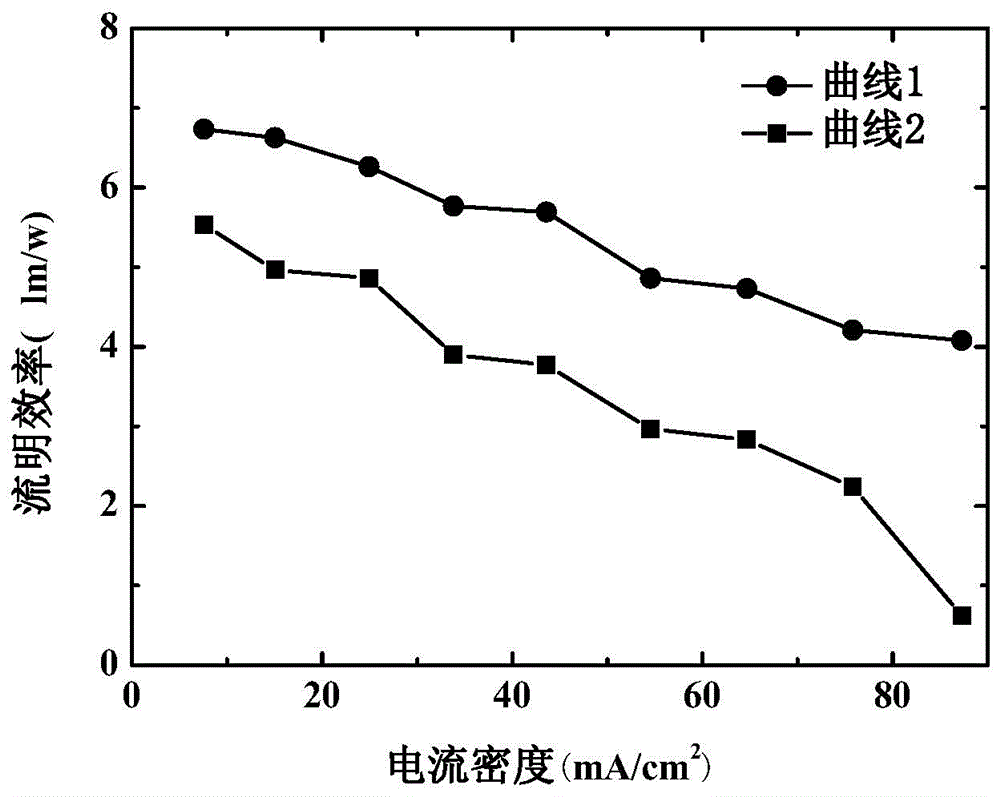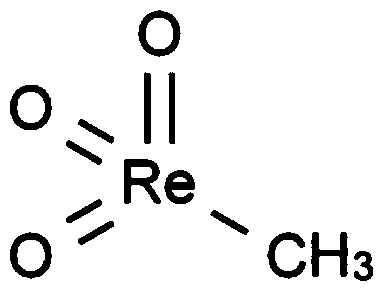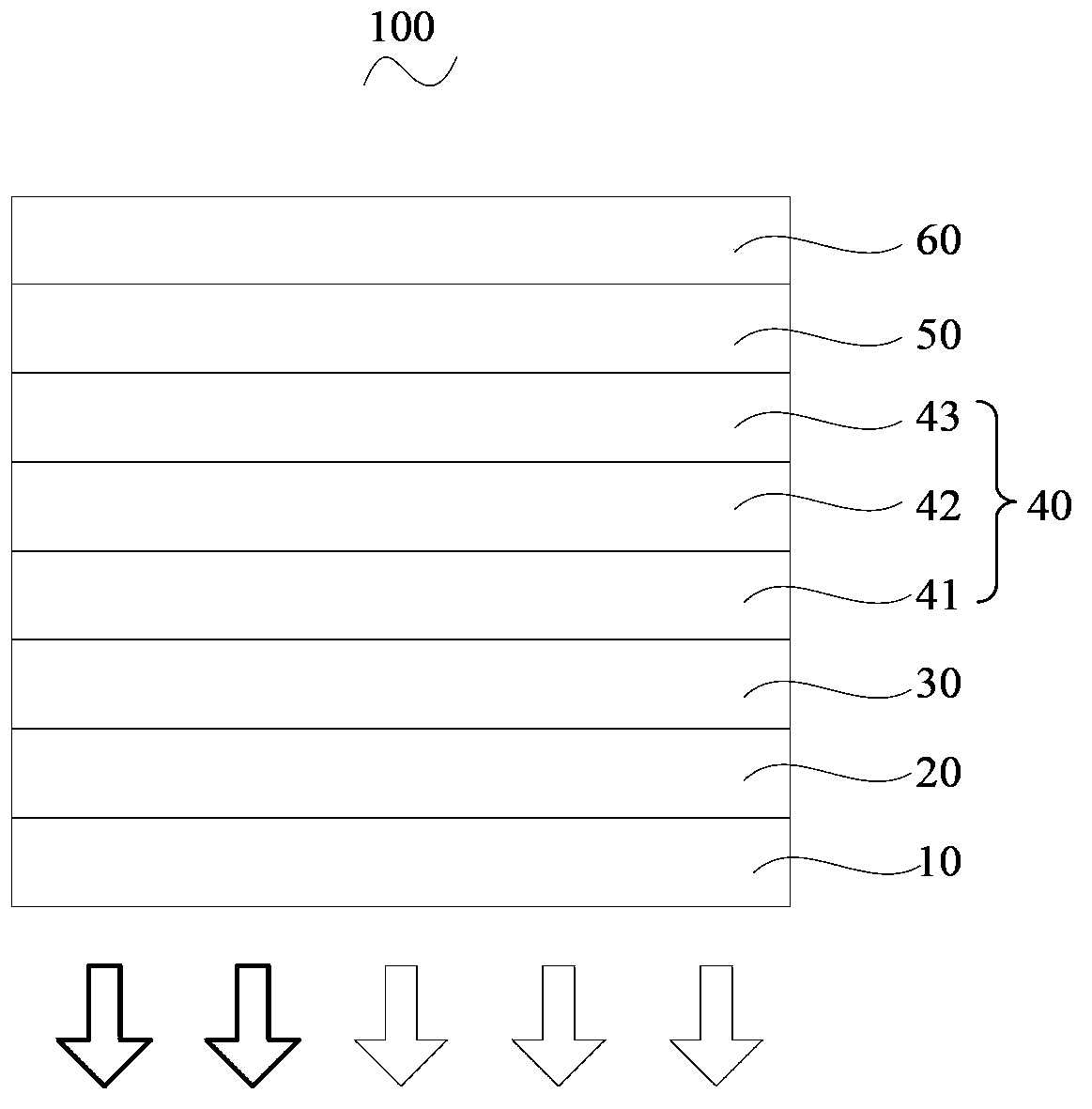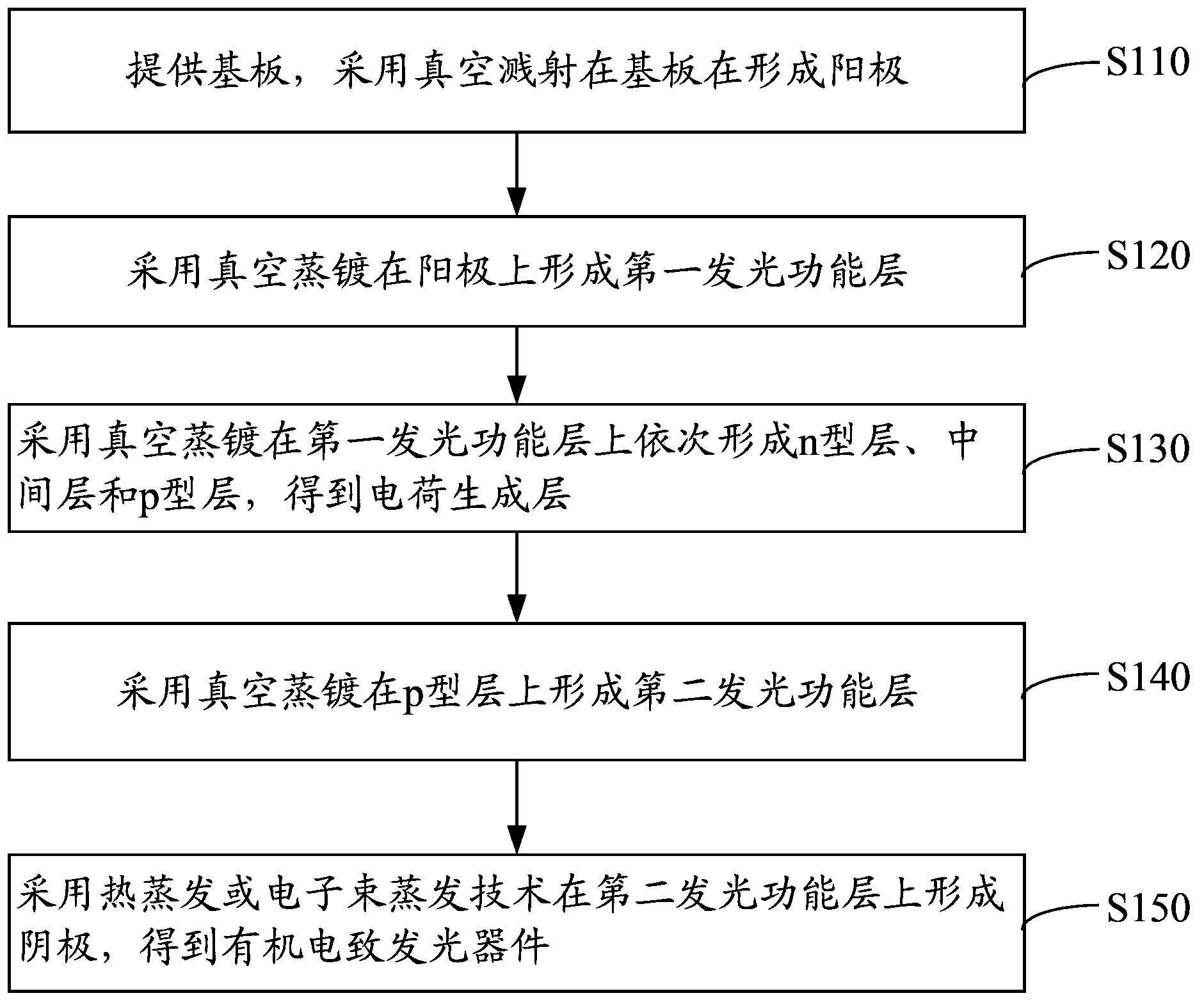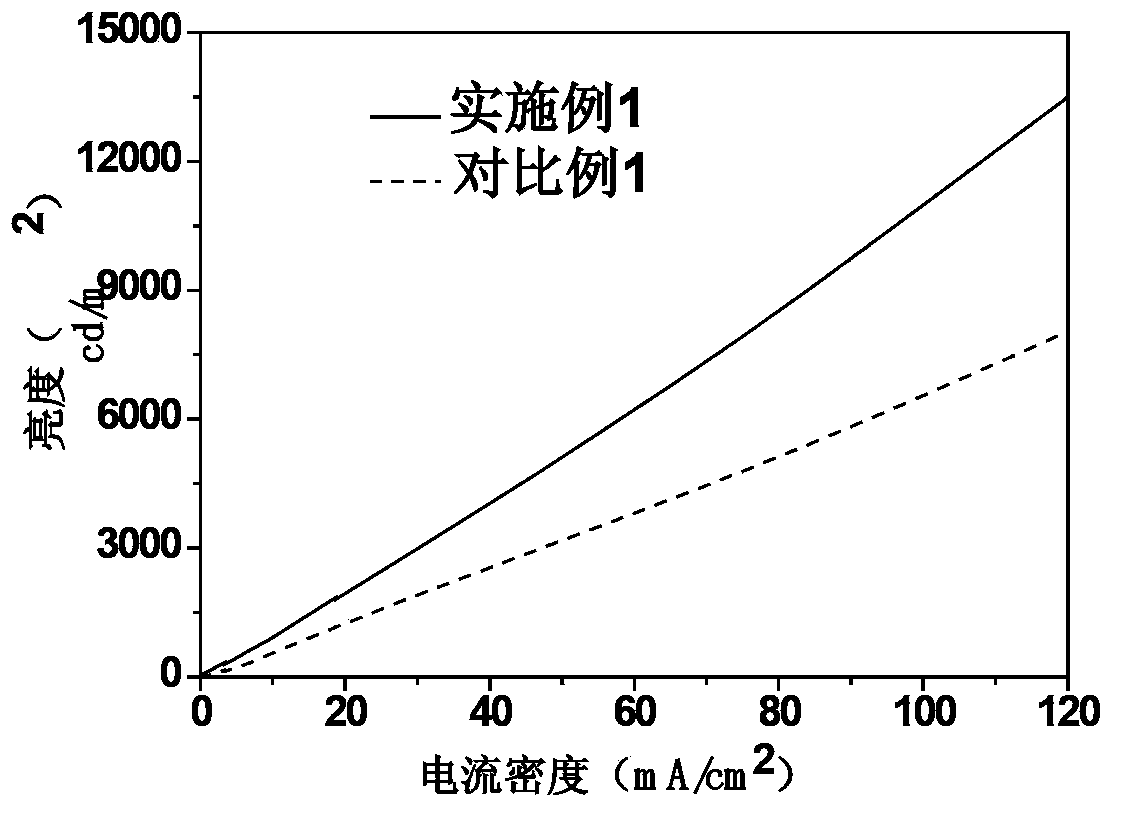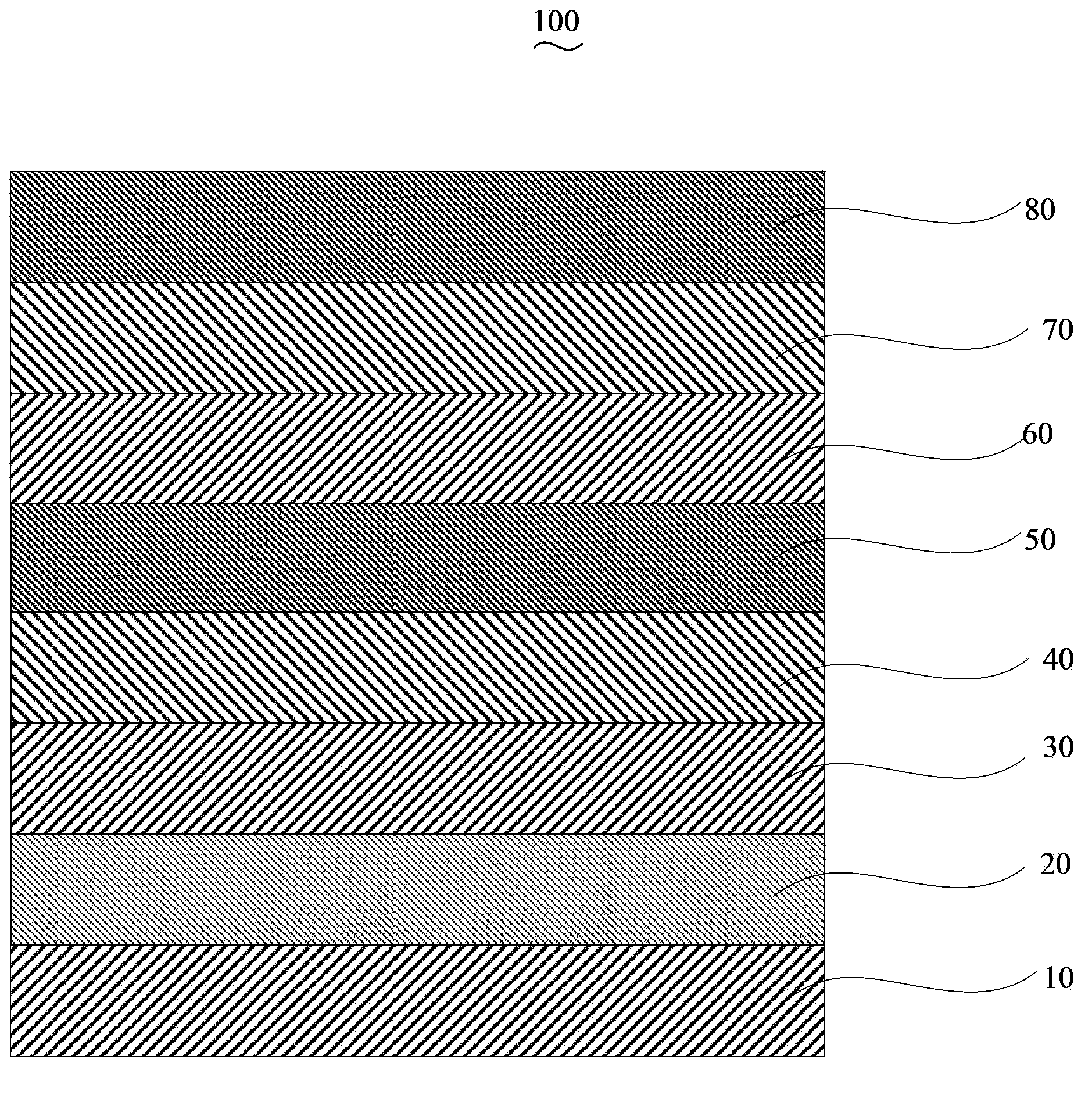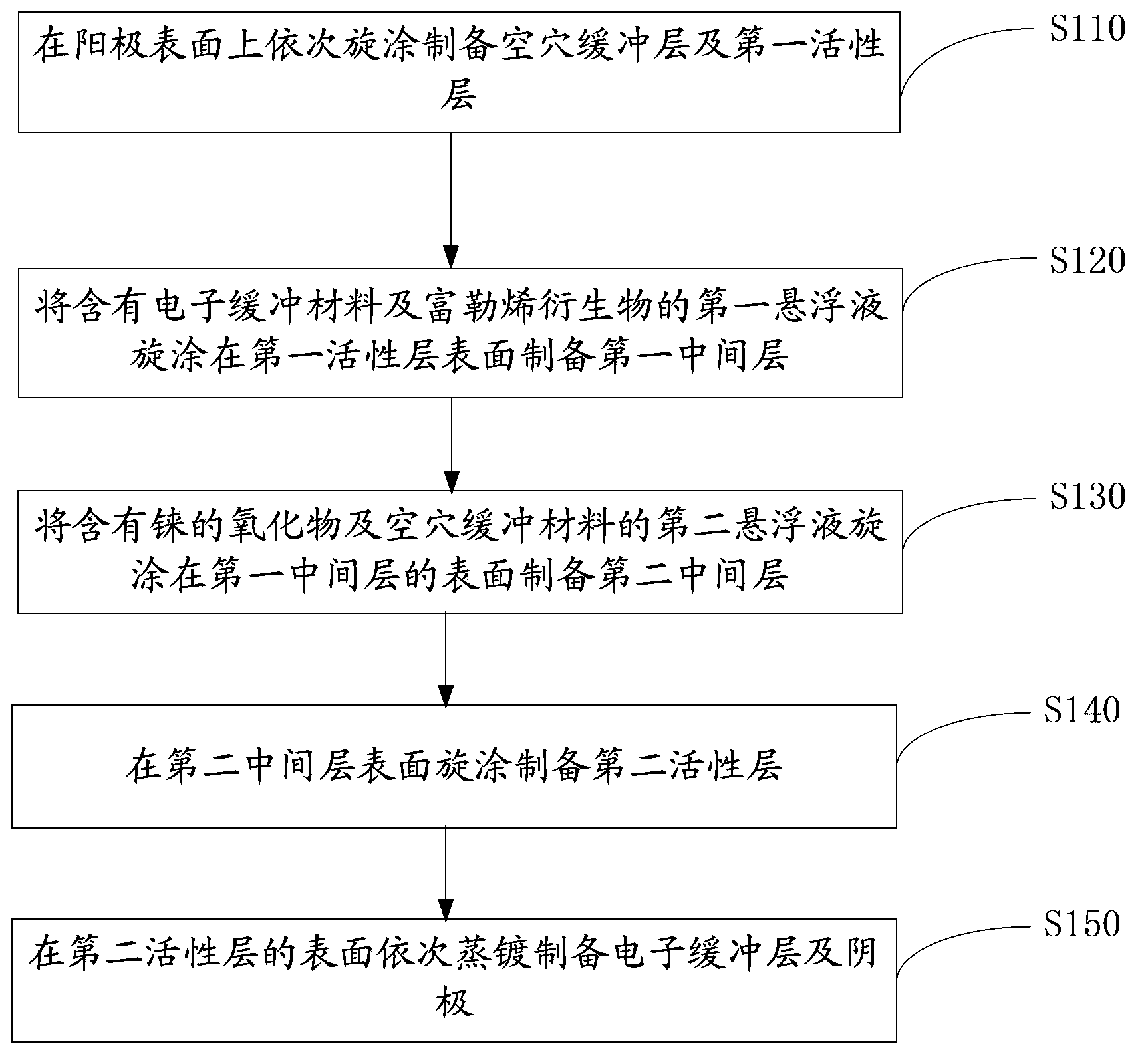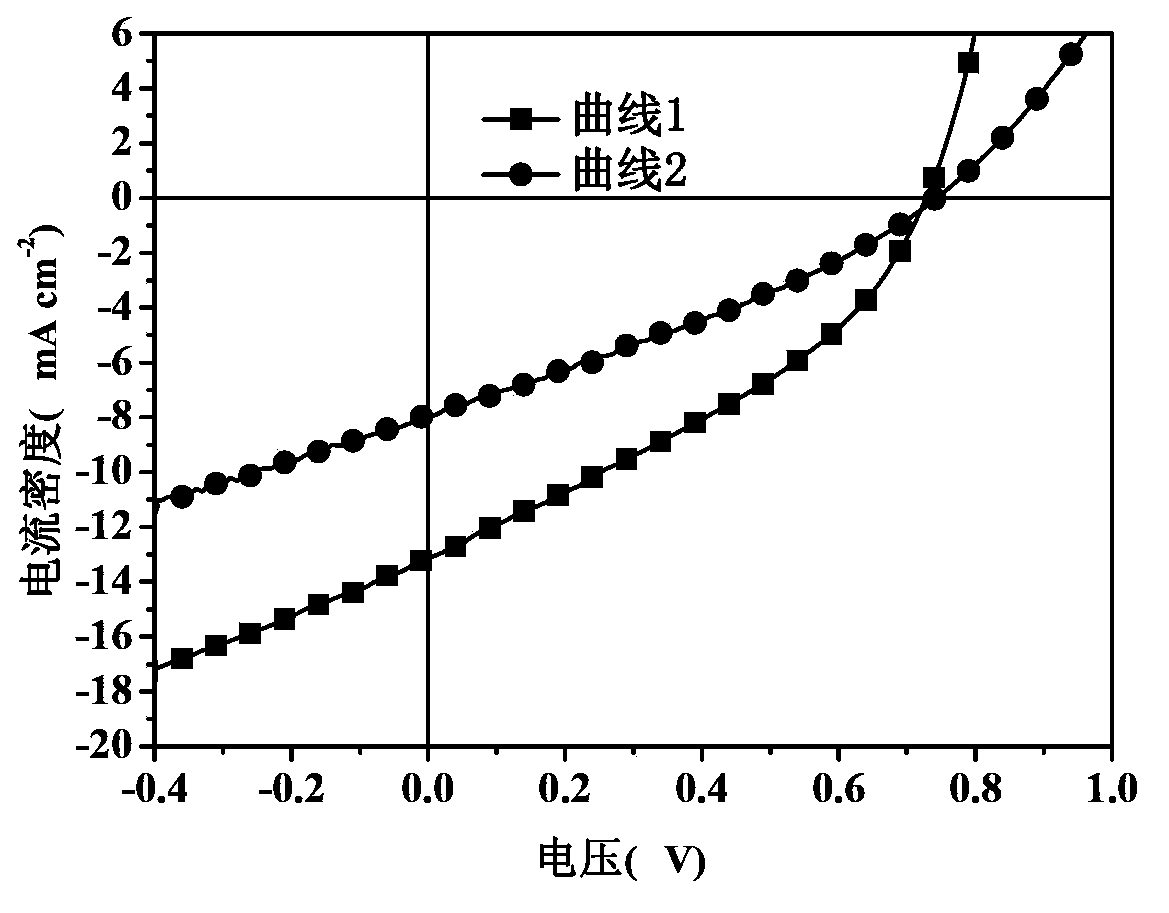Patents
Literature
42 results about "Rhenium trioxide" patented technology
Efficacy Topic
Property
Owner
Technical Advancement
Application Domain
Technology Topic
Technology Field Word
Patent Country/Region
Patent Type
Patent Status
Application Year
Inventor
Rhenium trioxide or rhenium(VI) oxide is an inorganic compound with the formula ReO₃. It is a red solid with a metallic lustre, which resembles copper in appearance. It is the only stable trioxide of the Group 7 elements (Mn, Tc, Re).
Composite material, light emitting element and light emitting device
ActiveUS8420227B2Maintain good propertiesHigh transparencyDischarge tube luminescnet screensLamp detailsInorganic compoundVanadium oxide
An object of the present invention is to provide a composite material formed of an organic compound and an inorganic compound, and has an excellent carrier transporting property, an excellent carrier injecting property to the organic compound, as well as excellent transparency. A composite material of the present invention for achieving the above object is a composite material of an organic compound represented in the general formula below, and an inorganic compound. For the inorganic compound, an oxide of a transition metal, preferably an oxide of a metal belonging to groups 4 to 8 of the periodic table, in particular vanadium oxide, tantalum oxide, molybdenum oxide, tungsten oxide, rhenium oxide, and ruthenium oxide, can be used.
Owner:SEMICON ENERGY LAB CO LTD
Method for growing rhenium disulfide nanometer sheets on silicon substrate of non-oxidation layer
The invention discloses a method for growing rhenium disulfide nanometer sheets on a silicon substrate of a non-oxidation layer. The method comprises the following steps that S1, the silicon substrateis cleaned and is subjected to pretreatment; S2, in a multi-temperature-zone tubular furnace, one aluminum oxide boat is arranged in each of two adjacent temperature regions, wherein the distance between the two aluminum oxide boats is 20 to 30cm; a sulfur source is arranged in the center position of the aluminum oxide boat in the upper stream temperature region; a rhenium source is arranged in the lower stream edge of the aluminum oxide boat of the lower stream temperature region; a growth surface of the silicon substrate faces the downward position; the distance from the silicon substrate to the lower stream edge of the aluminum oxide boat of the lower stream temperature region is 0 to 1cm; S3, then, inert gas is introduced into a dual-temperature-region tubular furnace, heating is performed for reaction; the rhenium disulfide nanometer sheets can grow on the silicon substrate of the non-oxidation layer. The sublimed sulfur is used as a sulfur source; rhenium trioxide is used as a rhenium source; a chemical gas phase precipitation method is used; by regulating the distance between the sulfur source and the rhenium source and the position of the rhenium source in the lower streamtemperature region and the position of the silicon substrate, the rhenium disulfide nanometer sheets on the silicon substrate can directly grow on the silicon substrate of the non-oxidation layer.
Owner:INT ACAD OF OPTOELECTRONICS AT ZHAOQING SOUTH CHINA NORMAL UNIV
Preparation of rhenium sulfide and cadmium sulfide/rhenium sulfide composite material
ActiveCN108002445AImprove photoresponsivityImprove external quantum efficiencyRhenium compoundsSulfurWater assisted
The invention discloses preparation of rhenium sulfide and a cadmium sulfide / rhenium sulfide composite material. A two-dimensional monolayer rhenium disulfide is grown on a mica sheet substrate through an ordinary pressure chemical vapor deposition method with sulfur powder as a sulfur source and rhenium trioxide as a rhenium source under protection of an inert gas and a water-assisting precondition; by means of a secondary growth method, cadmium sulfide particles are again deposited on the mica sheet substrate with the two-dimensional monolayer rhenium disulfide, and a CdS / ReS2 composite material with the cadmium sulfide particles growing on the surface of the rhenium sulfide is obtained. The preparation of the rhenium sulfide and the cadmium sulfide / rhenium sulfide composite material have the advantages that the process is simple, low-cost, rapid, highly efficient and controllable, and the high-quality single-layer rhenium sulfide is prepared. The CdS / ReS2 composite material obtained by depositing the cadmium sulfide on the two-dimensional material rhenium sulfide has more excellent photoelectric properties and has a high response rate while being applied to a photoelectric device.
Owner:WENZHOU UNIVERSITY
Top-emitting organic electroluminescent device and preparation method thereof
InactiveCN103594653AGuaranteed stabilityTroubleshoot injection issuesSolid-state devicesSemiconductor/solid-state device manufacturingElectronic transmissionRhenium(VII) oxide
The invention belongs to the field of organic semiconductor materials and discloses a top-emitting organic electroluminescent device and a preparation method thereof. The device comprises a substrate, a cathode layer, an electronic transmission layer, a hole barrier layer, a luminescent layer, an electronic barrier layer, a hole transmission layer, a buffer layer and an anode layer which are successively stacked. The buffer layer is made of rhenium trioxide, rhenium heptoxide, tungsten oxide, molybdenum trioxide, molybdenum dioxide or vanadic oxide. According to the top-emitting organic electroluminescent device, metal is employed as a cathode and a transparent conductive oxide is employed as an anode so that the carrier injection problem is solved, and the anode can be placed at the top of the luminescent device as a light extraction direction so as to obtain quite high light extraction efficiency; besides, the buffer layer is arranged between the anode and an organic layer and is provided with quite high work content sot that the hole injection efficiency can be improved.
Owner:OCEANS KING LIGHTING SCI&TECH CO LTD +2
Organic electroluminescence device and preparation method thereof
InactiveCN104347811AImprove luminous efficiencyLower electron barrierSolid-state devicesSemiconductor/solid-state device manufacturingElectronic transmissionSilicon oxide
The invention relates to an organic electroluminescence device and a preparation method thereof. The organic electroluminescence device comprises an anode conductive substrate, a hole injection room, a hole transmission layer, a luminous layer, an electronic transmission layer, an electron injection layer and a cathode which are sequentially stacked, wherein the cathode comprises sodium salt layer, a doping layer and a metallic sulfide layer which are sequentially stacked on the electron injection layer; the material of the sodium salt layer is sodium carbonate, sodium fluoride, sodium chloride or sodium bromide; The material of the doping layer comprises rhenium oxide, a passivation material and metal; the rhenium oxide is rhenium heptoxide, rhenium dioxide, rhenium trioxide or rhenium sesquioxide; the passivation material is silicon oxide, aluminum oxide, nickelous oxide or copper oxide; the metal is magnesium, strontium calcium or ytterbium; the material of the metallic sulfide room is zinc sulfide, cadmium sulfide, magnesium sulfide or copper sulphide. The organic electroluminescence device is high in luminous efficiency.
Owner:OCEANS KING LIGHTING SCI&TECH CO LTD +2
Novel ternary osmium-rhenium diboride (Os<1-x>Re<2>B<2>) hard material and preparation method thereof
The invention discloses a transition metal osmium-rhenium diboride (Os<1-x>Re<2>B<2>) material with high hardness and wear resistance and a preparation method thereof and belongs to the field of inorganic non-metallic hard materials. According to the technical scheme, the method comprises the following steps: by adopting a mechanical and chemical method and high-energy ball mill equipment, and taking high-purity osmium (Os) powder, rhenium (Re) powder and boron (B) powder as raw materials, synthesizing osmium-rhenium diboride powder at a room temperature; and carrying out dense sintering on the synthesized osmium-rhenium diboride powder under an argon protection atmosphere by using a high-temperature sintering technology to obtain a high-density and high-hardness bulk material. The transition metal osmium-rhenium diboride (Os<1-x>Re<2>B<2>) material has the characteristics that the osmium-rhenium diboride powder is synthesized at the room temperature and the osmium-rhenium diboride (Os<1-x>Re<2>B<2>) bulk material of a hexagonal structure with high-temperature stability is prepared. The prepared osmium-rhenium diboride material can be applied to industrial uses, such as cutting tools and grinding.
Owner:GUANGDONG UNIV OF TECH
Preparation method of vertically-grown rhenium disulfide nanosheet
ActiveCN110143616ACompact structureLarge specific surface areaPhysical/chemical process catalystsRhenium compoundsElectrochemistryControllability
The invention discloses a preparation method of a vertically-grown rhenium disulfide nanosheet. The preparation method comprises the following steps: placing rhenium trioxide on a silicon wafer A, then putting the silicon wafer A in a reaction boat, horizontally laying a carbon cloth substrate on the reaction boat, then covering the carbon cloth substrate by a silicon wafer B, and reserving vent holes at two ends of the reaction boat; placing sulfur powder in a reaction container, placing the reaction boat and the reaction container in a quartz glass tube, placing the quartz glass tube in a vacuum tube furnace, then raising the temperature in the vacuum tube furnace to 650-850 DEG C at an inert gas atmosphere, and keeping the temperature for 20-40 minutes to obtain the vertically-grown rhenium disulfide nanosheet. The preparation method provided by the invention is simple in process, and the prepared three-dimensional rhenium disulfide nanosheet has relatively good electrocatalytic activity as a catalyst for electrochemical hydrogen production, and is good in stability. Meanwhile, due to the fact that the growth substrate is cheap and controllability of experiment conditions is good, the method can be easily introduced into practical industrial production, and therefore, the method has a wide application prospect in the green chemistry industry.
Owner:SHAANXI UNIV OF SCI & TECH
Method for preparing pantoprazole sodium sulfone-nitrogen oxidized impurity
ActiveCN105111186AEasy to prepareSimple post-processingOrganic chemistryMethylrhenium trioxideReaction temperature
The invention discloses a method for preparing a pantoprazole sodium sulfone-nitrogen oxidized impurity. The method comprises the steps: enabling 2-chloromethyl-3,4-dimethoxy pyridine hydrochloride, which serves as a raw material, to react with 5-difluoromethoxy-2-mercapto-1H-benzimidazole so as to produce 5-difluoromethoxy-2-{[(3,4-dimethoxy-2-pyridyl)methyl]sulfo}-1H-benzimidazole; then, oxidizing 5-difluoromethoxy-2-{[(3,4-dimethoxy-2-pyridyl)methyl]sulfo}-1H-benzimidazole in the presence of hydrogen peroxide and acetic acid in a manner of using methyl rhenium trioxide as a catalyst, so as to produce a sulfone-nitrogen oxidized product of pantoprazole; and finally, forming a sodium salt by the sulfone-nitrogen oxidized product of pantoprazole and sodium hydroxide, thereby obtaining the pantoprazole sodium sulfone-nitrogen oxidized impurity. According to the method, the hydrogen peroxide-acetic acid system can oxidize a pyridine ring. The oxidizer methyl rhenium trioxide is adopted as the catalyst and can be complexed with hydrogen peroxide so as to produce peroxide of rhenium, oxygen in the peroxide of rhenium can be transferred to thioether needing oxidization, and thioether can be oxidized into sulfone through controlling the usage amount of the catalyst and the reaction temperature, so that the high-yield and high-purity product can be obtained.
Owner:山东安信制药有限公司
Growth method of rhenium disulfide monocrystal
InactiveCN105970297AHigh purityImprove qualityPolycrystalline material growthFrom condensed vaporsBromineSulfidation
The invention provides a growth method of rhenium disulfide monocrystal, including: mixing and placing rhenium trisulfide and excessive sulfur powder according to a ratio into a quartz tube, vacuumizing, holding a temperature of 400 DEG C for one to two days, grinding obtained powder, burning on an alcohol burner, and removing redundant sulfur to obtain high-purity rhenium disulfide polycrystal; mixing the obtained desulfurized rhenium disulfide polycrystal with a transport agent bromine, sealing in a quartz tube, vacuumizing, placing in a multi-temperature furnace, and growing rhenium disulfide monocrystal by a chemical gaseous transport method.
Owner:南京安京太赫光电技术有限公司
Process for the recovery of tyrosol and hydroxytyrosol from oil mill wastewaters and catalytic oxidation method in order to convert tyrosol in hydroxytyrosol
ActiveUS7427358B2Ease of industrial applicationHigh purityCosmetic preparationsOrganic chemistryTyrosolHydroxytyrosol
A for preparing Tyrosol and / or Hydroxytyrosol from oil mill wastewaters.includes:a) Microfiltration (MF), Ultrafiltration (UF). Nanofiltration (NF) and Reverse Osmosis (RO) of the OMW;b) Separation of Tyrosol, Hydroxytyrosol and other phenolic compounds from the concentrated RO;c) Oxidation of the obtained Tyrosol to Hydroxytyrosol in the presence of methyl rhenium trioxide and of hydrogen peroxide in a protic solvent.
Owner:LACHIFARMA LAB CHIM FARM SALENTINO
Composition for the degradation of plastic
ActiveUS20150203666A1Low production costPlastic recyclingMethylrhenium trioxideButylated hydroxytoluene
A composition for the degradation of plastic in the form of an additive used during the manufacturing of plastic. The composition being comprised of a predetermined amount of heptane, cellulose, methyl rhenium trioxide, butylated hydroxytoluene, and polyphenol oxidase. The additive can be selectively programmed to cause the plastic to begin disintegrating at a predetermined time.
Owner:TIMEPLAST LLC
Organic electroluminescence device and preparation method thereof
InactiveCN104347803AImprove conductivityIncrease profitSolid-state devicesSemiconductor/solid-state device manufacturingRhenium(VII) oxideSesquioxide
The invention relates to an organic electroluminescence device and a preparation method thereof. The device comprises a cathode, wherein the cathode comprises a crystallizing layer, a first doping layer and a second doping layer and a second doping layer; the material of the crystallizing layer is 1,2,4-triazole derivatives, 2,2'-(1,3-phenyl)bi[5-(4-tertiary butyl phenyl)-1,3,4-oxadiazole], 2,9-dimethyl-4,7-diphenyl-1,10-orthophenanthrolene or 2,8-bi(diphenyl phosphine oxygroup)dibenzanthracene[b,d]thiophene; the material of the first doping layer comprises rhenium oxide and metallic sulfide; the rhenium oxide is rhenium heptoxide, rhenium dioxide, rhenium trioxide or rhenium sesquioxide; the metallic sulfide is zinc sulfide, cadmium sulfide, magnesium sulfide or copper sulphide; the material of the second doping layer comprises fullerene derivative and metal; the fullerene derivative is footballene, carbon 70, PC61BM or P71BM; the metal is magnesium, strontium, calcium or ytterbium. The device is high in luminous efficiency.
Owner:OCEANS KING LIGHTING SCI&TECH CO LTD +2
Transition-metal oxides-coated hydrogen-terminated diamond surface and uses thereof
The present invention provides a conducting material comprising a carbon-based material selected from a diamond or an insulating diamond-like carbon, having a hydrogen-terminated surface and a layer of tungsten trioxide, rhenium trioxide, or chromium oxide coating said hydrogen-terminated surface. Such conducting materials are useful in the fabrication of electronic components, electrodes, sensors, diodes, field effect transistors, and field emission electron sources.
Owner:TECHNION RES & DEV FOUND LTD
Method for directly growing even rhenium diselenide nanosheet on substrate electrode, modified electrode and application
ActiveCN108862397AHigh catalyticImprove adhesionHydrogen productionRhenium compoundsAdhesion forceGas phase
The invention relates to a method for directly growing an even rhenium diselenide nanosheet on a substrate electrode, a modified electrode and application. The method comprises the following steps that 1, selenium powder is heated until the selenium powder gasifies, rhenium trioxide and the substrate electrode are heated, and reducing gas is introduced; 2, after the rhenium trioxide is heated until splitting, the gasified selenium powder and the rhenium trioxide are mixed, the temperature is elevated to 450-700 DEG C continuously, and rhenium diselenide grows and precipitates on the substrateelectrode, so that the even rhenium diselenide nanosheet is obtaned; a mass ratio of the selenium powder to the rhenium trioxide is (200 to 300) to 1. According to the method for directly growing theeven rhenium diselenide nanosheet on the substrate electrode, through a chemical vapor deposition method, the rhenium diselenide directly grows on the substrate electrode, the substrate electrode is used as an electrode for catalyzing hydrogen production, adhesion force between the rhenium diselenide and the electrode is greatly improved, and meanwhile, the catalytic performance of the rhenium diselenide is improved; moreover, the temperature in the method is low, and a technology is simple.
Owner:INT ACAD OF OPTOELECTRONICS AT ZHAOQING SOUTH CHINA NORMAL UNIV
Production method of low-hydroxylic bactericidal deodorant quartz tube
InactiveCN102311219AHas the function of sterilization and deodorizationConsistent appearanceGlass shaping apparatusSesquioxideTube drawing
The invention discloses a production method of a low-hydroxylic bactericidal deodorant quartz tube. The production method comprises the following steps of 1, selecting high-purity quartz as a main material for production of the low-hydroxylic bactericidal deodorant quartz tube, and rhenium trioxide, titanium dioxide, europium sesquioxide and potassium dioxalate as auxiliary materials for production of the low-hydroxylic bactericidal deodorant quartz tube, wherein SiO2 content of the high-purity quartz is great than or equal to 99.95% and the quality of each one of rhenium trioxide, titanium dioxide, europium sesquioxide and potassium dioxalate is 0.1 to 5% of that of the high-purity quartz, 2, mixing uniformly the main material and the auxiliary materials by stirring and drying at a temperature of 200 DEG C by an oven to obtain a mixed material, 3, putting the mixed material into a continuous melting furnace to carry out melting at a temperature of 1800 to 2000 DEG C and carrying out direct production of a bactericidal deodorant quartz tube by traction produced by a tube drawing machine, and 4, putting the produced bactericidal deodorant quartz tube into a vacuum dehydroxylation furnace to carry out dehydroxylation at a temperature of 800 to 1050 DEG C for 3 to 8 hours to obtain a low-hydroxylic bactericidal deodorant quartz tube. The low-hydroxylic bactericidal deodorant quartz tube prepared by the production method has bactericidal and deodorant functions and is colorless and transparent, and thus enlarging a use scope of quartz tubes.
Owner:LIANYUNGANG HUAYUAN QUARTZ PROD
Computer connecting wire material and preparation method thereof
InactiveCN108485130AImprove smoke suppression and flame retardant performanceImprove bending resistanceGlass fiberPolyvinyl chloride
The invention discloses a computer connecting wire material which comprises the following raw materials in parts by weight: 30-40 parts of polyvinyl chloride resin, 20-30 parts of ABS (acrylonitrile butadiene styrene) resin, 15-22 parts of dioctyl phthalate, 6-12 parts of fatty acid calcium, 8-15 parts of nano calcium carbonate, 5-10 parts of kieselguhr, 5-10 parts of meerschaum, 4-9 parts of glass fiber, 4-9 parts of rosin, 2-5 parts of paraffin, 3-7 parts of rhenium trioxide, 2-5 parts of polyphosphonamide, 1.8-3.6 parts of compound stabilizer and 1.5-2.8 parts of coupling agent. Due to coordination and matching of the raw materials, the smoke suppression and flame retardance performance of the material are improved; at the same time, the material has good fracture resistance and tensileresistance and is easy to produce; and the preparation method is simple.
Owner:合肥展游软件开发有限公司
Method of production of vitamin E
The invention provides processes for producing phytol, isophytol, and certain phytol derivatives by a method of oxidizing or epoxidizing geranylgeraniol or geranylgeraniol derivatives to form epoxygeranylgeraniol derivatives, reducing or hydrogenating the epoxygeranylgeraniol derivatives to produce epoxyphytol derivatives, and then deoxygenating the epoxyphytol derivatives to produce phytol, isophytol, phytene derivatives, isophytene derivatives, or mixtures thereof. The step of deoxygenating is carried out in the presence of deoxygenation catalysts, including rhenium trioxide compounds. The invention also provides methods for the synthesis of certain novel substituted epoxyphytyl compounds and substituted phytene compounds having removable protecting groups. The produced phytol, isophytol, phytene derivatives, isophytene derivatives, substituted epoxyphytyl compounds and substituted phytene compounds are suitable starting materials for condensation with trimethylhydroquinone derivatives in the presence of Lewis acids to give tocopherol derivatives including alpha-tocopherol, vitamin E.
Owner:EASTMAN CHEM CO
Composition for the degradation of plastic
Owner:TIMEPLAST LLC
Organic electroluminescent device and packaging method thereof
InactiveCN104051646AExtended service lifeReduce erosionSolid-state devicesSemiconductor/solid-state device manufacturingPhenanthrolineNickel sulfide
The invention discloses an organic electroluminescent device and a packaging method thereof. The device comprises an anode, a cavity injection layer, a cavity transmission layer, a luminescent layer, an electron transmission layer, an electron injection layer and a cathode which are successively stacked, and five to seven protection layers stacked on the cathode. Each protection layer comprises an organic barrier layer and an inorganic barrier layer which are stacked. Each organic barrier layer is formed by copper phthalocyanine, N,N'-diphenyl-N,N'-di(1-naphthyl)-1,1'-biphenyl-4,4'-diamine, (8-hydroxyquinoline)aluminum, 4,4',4''-tris(N-3-methylphenyl-N-phenylamino)triphenylamine or 2,9-dimethyl-4,7-diphenyl-1,10-phenanthroline. Each inorganic barrier layer is formed by mixing one from dirhenium oxide, rhenium oxide, rhenium sesquioxide, rhenium dioxide, dirhenium pentoxide and rhenium trioxide with one from cadmium sulfide, lead sulfide, iron disulfide, copper sulfide, zinc sulfide and nickel sulfide. The service life of the organic electroluminescent device is enabled to be longer.
Owner:OCEANS KING LIGHTING SCI&TECH CO LTD +2
Solar cell device and preparation method thereof
InactiveCN103824948AImprove energy conversion efficiencyEasy injectionFinal product manufactureSolid-state devicesRhenium(VII) oxideSolar cell
The invention provides a solar cell device comprising an anode, a hole buffer layer, an active layer, an electron buffer layer and a cathode which are laminated in turn. The material of the active layer is mixture of poly 3-hexyl thiophene and methyl butyrate of fullerene. The material of the hole buffer layer comprises oxides of rhenium, electron buffer materials and hole buffer materials. The oxides of rhenium are selected from at least one of rhenium dioxide, rhenium heptoxide, rhenium trioxide and oxide rhenium. The electron buffer materials are selected from at least one of cesium azide, lithium fluoride, lithium carbonate and cesium carbonate. The hole buffer materials are mixture of poly 3,4-ethylene dioxythiophene and polyphenyl sulfonate. The solar cell device is relatively high in energy conversion efficiency. Besides, the invention also provides a preparation method of the solar cell device.
Owner:OCEANS KING LIGHTING SCI&TECH CO LTD +2
Method for synthesizing methyl rhenium trioxide from perrhenate
InactiveCN100371339CThe synthesis process is simpleShort synthesis cycleGroup 7/17 element organic compoundsMethylrhenium trioxidePerrhenic acid
Owner:LIAONING UNIVERSITY
A method of directly growing uniform rhenium diselenide nanosheets on a substrate electrode, modified electrodes and applications
ActiveCN108862397BImprove catalysisImprove adhesionHydrogen productionRhenium compoundsPhysical chemistryChemical vapor deposition
The invention relates to a method for directly growing uniform rhenium diselenide nanosheets on a base electrode, a modified electrode and its application. The method includes the following steps: S1: heating the selenium powder until the selenium powder is gasified; heating the rhenium trioxide and the base electrode, and introducing a reducing gas; S2: after the rhenium trioxide is heated to cracking, the gasified selenium powder mixed with it, continue to heat up to 450-700°C, rhenium diselenide grows and deposits on the base electrode; the mass ratio of selenium powder to rhenium trioxide is 200:1-300:1. In the present invention, rhenium diselenide is directly grown on the substrate electrode by chemical vapor deposition method, and used as an electrode for catalytic hydrogen production, which greatly improves the adhesion between rhenium diselenide and the electrode, and at the same time improves the rhenium diselenide. catalytic. In addition, the temperature of the method is low and the process is simple.
Owner:INT ACAD OF OPTOELECTRONICS AT ZHAOQING SOUTH CHINA NORMAL UNIV
Organic electroluminescent device and preparation method thereof
InactiveCN104638154AImprove stabilityIncrease profitSolid-state devicesSemiconductor/solid-state device manufacturingZinc compoundsRhenium(VII) oxide
An organic electroluminescent device comprises an anode, a hole injection layer, a hole transport layer, a light emitting layer, an electron transport layer, an electron injection layer, and a cathode, all of which are sequentially stacked. The cathode layer is composed of an organic electron transport material layer, a rhenium oxide doped layer, and a metal doped layer. The HOMO energy level of the organic electron transport material is -6.5eV to -7.5eV, and the glass transition temperature is 50 DEG C to 100 DEG C. The rhenium oxide doped layer includes a rhenium oxide and a passivation material doped in the rhenium oxide, wherein the rhenium oxide includes at least one selected from rhenium heptoxide, rhenium dioxide, rhenium trioxide, and rhenium sesquioxide, and the passivation material includes at least one selected from silicon dioxide, aluminum oxide, nickel oxide, and copper oxide. The metal doped layer includes metal and a zinc compound doped in the metal. The organic electroluminescent device has high luminous efficiency. The invention further provides a method for preparing the organic electroluminescent device.
Owner:OCEANS KING LIGHTING SCI&TECH CO LTD +2
A kind of preparation method of pantoprazole sodium sulfone nitrogen oxide impurity
ActiveCN105111186BEasy to prepareSimple post-processingOrganic chemistryMethylrhenium trioxideReaction temperature
Owner:山东安信制药有限公司
Composition for the degradation of plastic
InactiveCN107406620AEasy to degradePreserve the original molecular structurePlastic recyclingEnzymesMethylrhenium trioxideButylated hydroxytoluene
A composition for the degradation of plastic in the form of an additive used during the manufacturing of plastic is provided. The composition comprises a predetermined amount of heptane, cellulose, methyl rhenium trioxide, butylated hydroxytoluene, and polyphenol oxidase. The additive can be selectively programmed to cause the plastic to begin disintegrating at a predetermined time
Owner:TIMPLAST INT LLC
Solar cell device and preparation method thereof
InactiveCN103824941AImprove energy conversion efficiencyImprove conductivityFinal product manufactureSolid-state devicesRhenium(VII) oxideSolar cell
The invention provides a solar cell device comprising an anode, a hole buffer layer, an active layer, a hole barrier layer, an electron buffer layer and a cathode which are laminated in turn. The material of the active layer is mixture of poly 3-hexyl thiophene and methyl butyrate of fullerene. The material of the hole barrier layer comprises oxides of rhenium and graphite. The oxides of rhenium are selected from at least one of rhenium dioxide, rhenium heptoxide, rhenium trioxide and oxide rhenium. The solar cell device is relatively high in energy conversion efficiency. Besides, the invention also provides a preparation method of the solar cell device.
Owner:OCEANS KING LIGHTING SCI&TECH CO LTD +2
Organic electroluminescence device and manufacturing method for organic electroluminescence device
InactiveCN104659230ASolution to short lifeLower HOMO levelSolid-state devicesSemiconductor/solid-state device manufacturingElectronic transmissionRhenium(VII) oxide
The invention discloses an organic electroluminescence device. The organic electroluminescence device comprises a glass substrate, a scattering layer, a positive pole, a hole-injection layer, a hole-transmission layer, a light-emitting layer, an electronic transmission layer, an electronic injection layer and a negative pole which are sequentially overlapped, wherein the scattering layer comprises a light-emitting material, zinc powder and a compound material of rhenium. The material of the light-emitting layer is selected from one and more of 4-(dicyanomethyl)-2-butyl-6-(1,1,7,7-tetramethyljulolidine-9-ethenyl)-4H-pyran, 9,10-di-beta-naphthyl anthracene, 4,4'-di(9-ethyl-3-vinylcarbazole)-1-1'-biphenyl and 8-hydroxyquinoline aluminum. The compound material of rhenium is selected from one and more of rhenium oxide, rhenium oxide, rhenium trioxide and rhenium chloride. The organic electroluminescence device is relatively high in light-emitting efficiency. The invention also provides a manufacturing method for the organic electroluminescence device.
Owner:OCEANS KING LIGHTING SCI&TECH CO LTD +2
Fuel oil deep-desulfurization method based on organic rhenium catalyst
ActiveCN103952175AUniform coatingHigh value-added utilizationHydrocarbon oils refiningResonanceGasoline
The invention relates to a fuel oil deep-desulfurization method based on an organic rhenium catalyst. The technical scheme adopted by the invention is as follows: the method comprises the steps of synthesizing methyl rhenium trioxide, mixing methyl rhenium trioxide and argil according to the mixing ratio of 20-50%, adding an equal proportion of molten cane sugar, and coating meso pores of a fixed bed under the condition of ultrasonic resonance; after hardening, repeatedly washing with chloroform, then, placing in a furnace, and sintering the organic rhenium catalyst at the high temperature of 300 DEG C; adding gasoline or diesel oil into a storage tank, injecting the oil product into a reactor at the flow velocity of 10-100m<3>h after the oil product is stable through standing, controlling the temperature of the reactor to 20-80 DEG C, and collecting the oil product into a finished product tank, thereby completing the desulfurization of fuel oil. By adopting the method disclosed by the invention, the sulfur content of the oil product can be remarkably lowered.
Owner:ZHUZHOU KAITE IND
Organic light-emitting device and preparation method thereof
InactiveCN104051636AImprove separation efficiencyImprove transmission efficiencySolid-state devicesSemiconductor/solid-state device manufacturingElectronRhenium trioxide
The invention provides an organic light-emitting device and a preparation method thereof. The device comprises a substrate, an anode, a first light emitting function layer, a charge generation layer, a second light emitting function layer and a cathode, wherein the components are successively stacked. The charge generation layer includes an n type layer, an intermediate layer, and a p type layer; the n type layer is formed by doping lithium carbonate, lithium azide, cesium azide or cesium carbonate in an electron transport material; the intermediate layer is formed by 2,3,5,6-tetrafluoro-7,7'8,8'-tetracyanoquino-dimethane, 1,3,4,5,7,8-hexafluoro-tetracyano-dimethyl-p-naphthoquinone, 2,2'-(2,5-dicyano-3,6-difluoro cyclohexane-2,5-diene-1,4-diylidene) dimalononitrile, or 2,3,6,7,10,11-hexacyano-1,4,5,8,9,12,-hexaazatriphenylene; and the p type layer is formed by doping rhenium trioxide, vanadium pentoxide, molybdenum oxide, or tungsten trioxide in a hole transport material. The provided device has advantages of low driving current and high luminous efficiency.
Owner:OCEANS KING LIGHTING SCI&TECH CO LTD +2
Solar cell device and preparation method thereof
InactiveCN103824944AImprove efficiencyImprove energy conversion efficiencySolid-state devicesSemiconductor/solid-state device manufacturingRhenium(VII) oxideSolar cell
The invention provides a solar cell device comprising an anode, a hole buffer layer, a first active layer, a first intermediate layer, a second intermediate layer, a second active layer, an electron buffer layer and a cathode which are laminated in turn. The first active layer is mixture of poly 3-hexyl thiophene and 6, 6-phenyl-C61-methyl butyrate. The material of the first intermediate layer comprises electron buffer materials and fullerene derivatives. The electron buffer materials are selected from at least one of cesium azide, lithium fluoride, lithium carbonate and cesium carbonate. The fullerene derivatives are selected from at least one of C60, C70, 6, 6-phenyl-C61-butyl acid methyl esters and 6, 6-phenyl-C71-butyl acid methyl esters. The material of the second intermediate layer comprises oxides of rhenium and hole buffer materials. The oxides of rhenium are selected from at least one of rhenium dioxide, rhenium heptoxide, rhenium trioxide and oxide rhenium. The solar cell device is relatively high in energy conversion efficiency. Besides, the invention also provides a preparation method of the solar cell device.
Owner:OCEANS KING LIGHTING SCI&TECH CO LTD +2
Features
- R&D
- Intellectual Property
- Life Sciences
- Materials
- Tech Scout
Why Patsnap Eureka
- Unparalleled Data Quality
- Higher Quality Content
- 60% Fewer Hallucinations
Social media
Patsnap Eureka Blog
Learn More Browse by: Latest US Patents, China's latest patents, Technical Efficacy Thesaurus, Application Domain, Technology Topic, Popular Technical Reports.
© 2025 PatSnap. All rights reserved.Legal|Privacy policy|Modern Slavery Act Transparency Statement|Sitemap|About US| Contact US: help@patsnap.com
